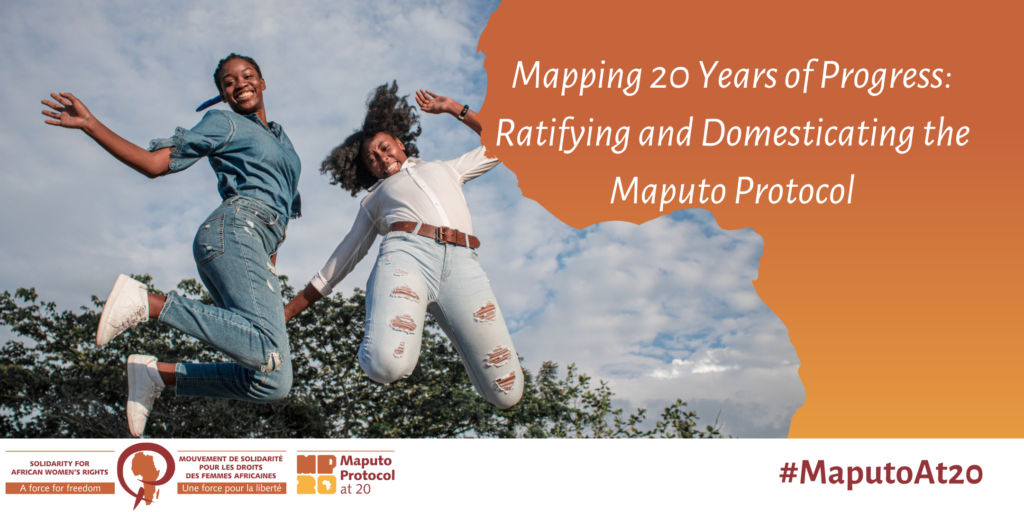Pour la version française, cliquez ici.
The SOAWR Coalition, Equality Now and the WORLD Policy Analysis Center (WORLD) present insightful data via map timelines demonstrating the progress in the ratification and domestication of the Maputo Protocol over the last two decades.
Table of Contents
Ratification of the Maputo Protocol
July 2003 - July 2023
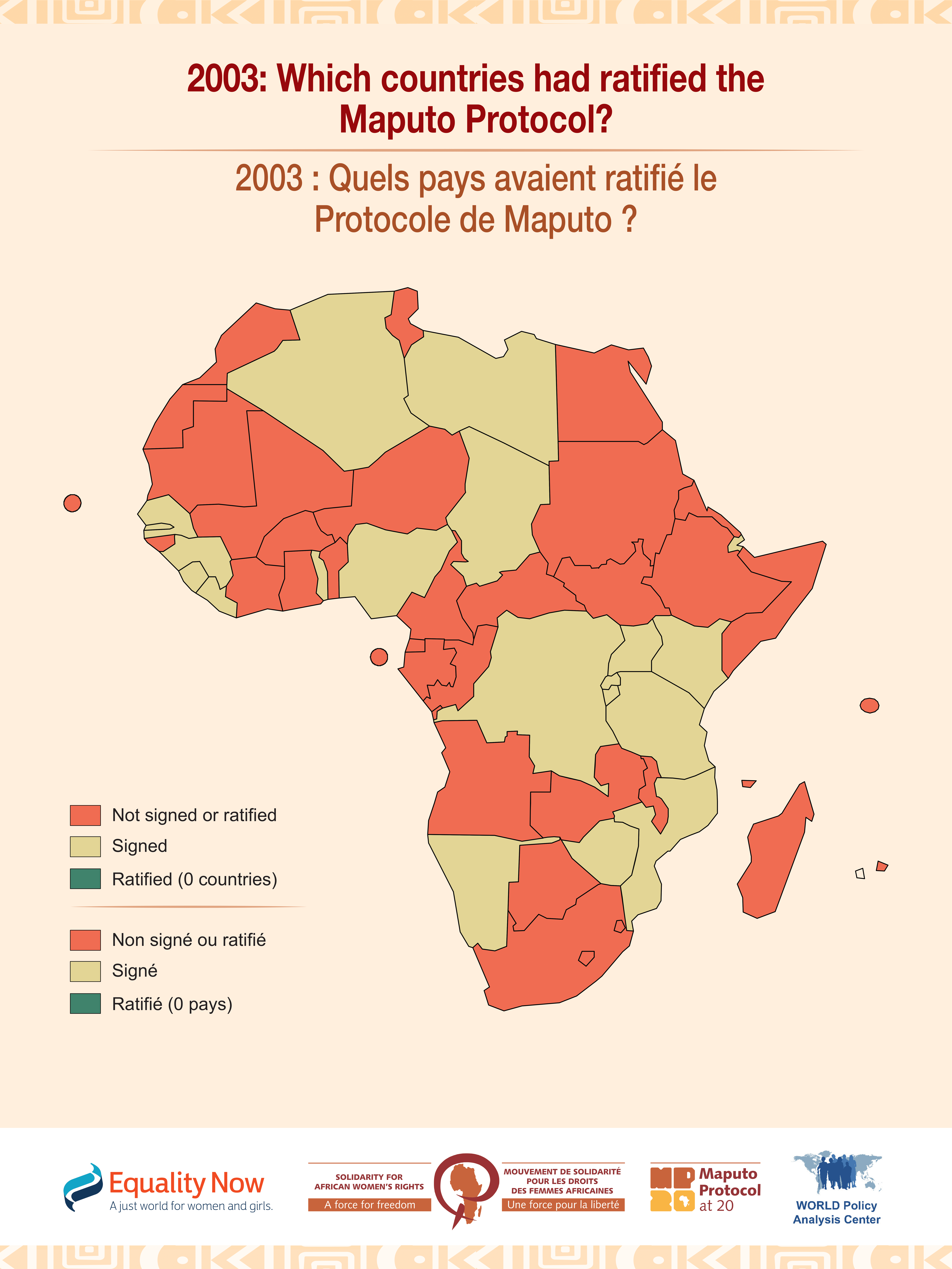
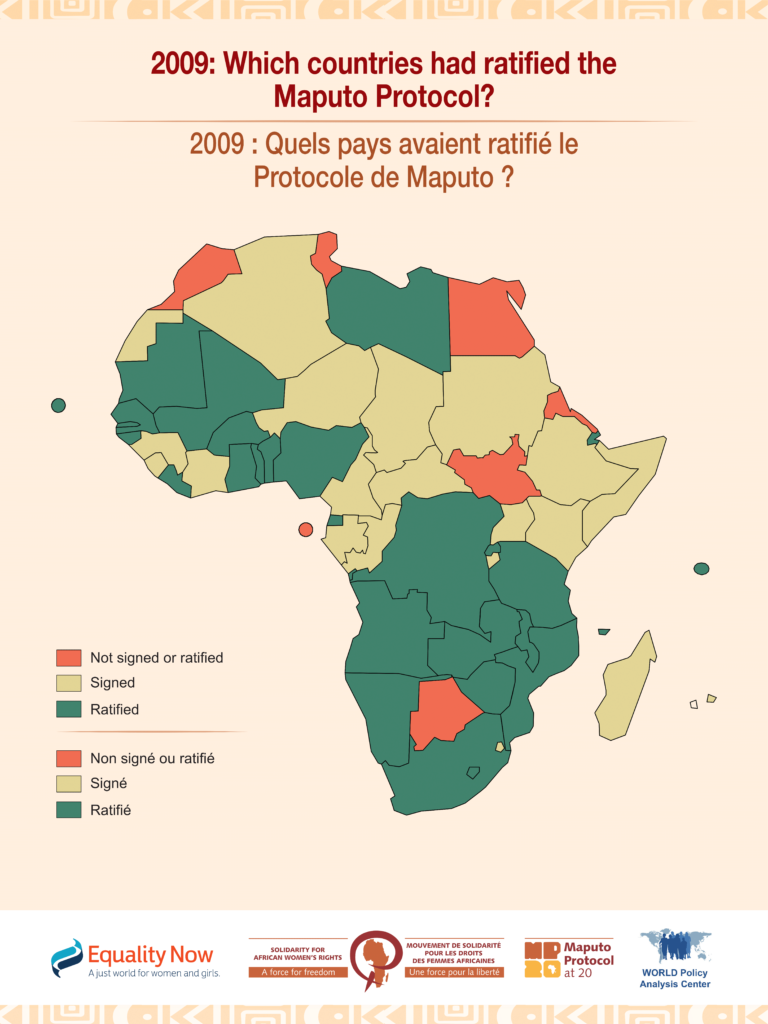
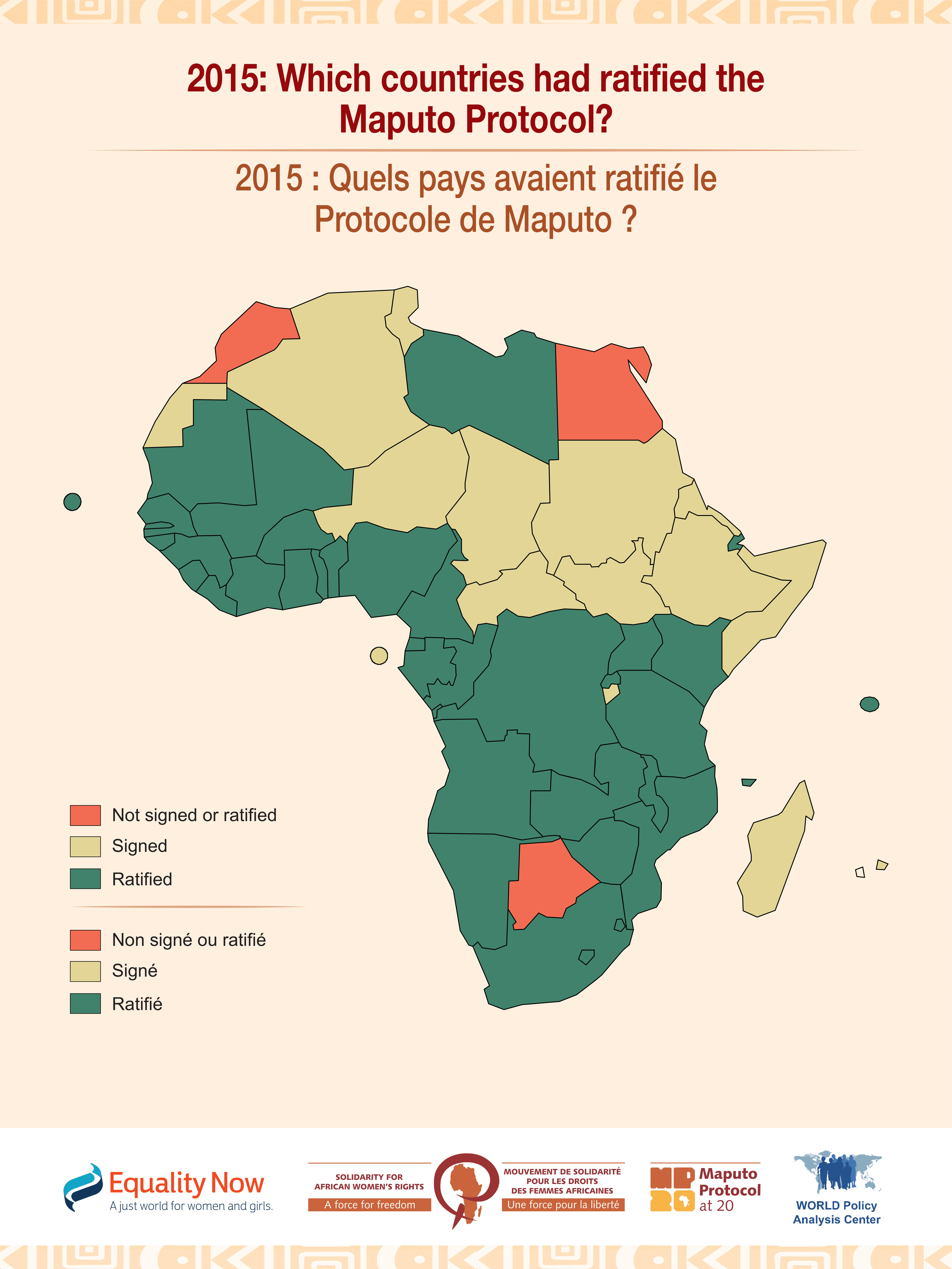
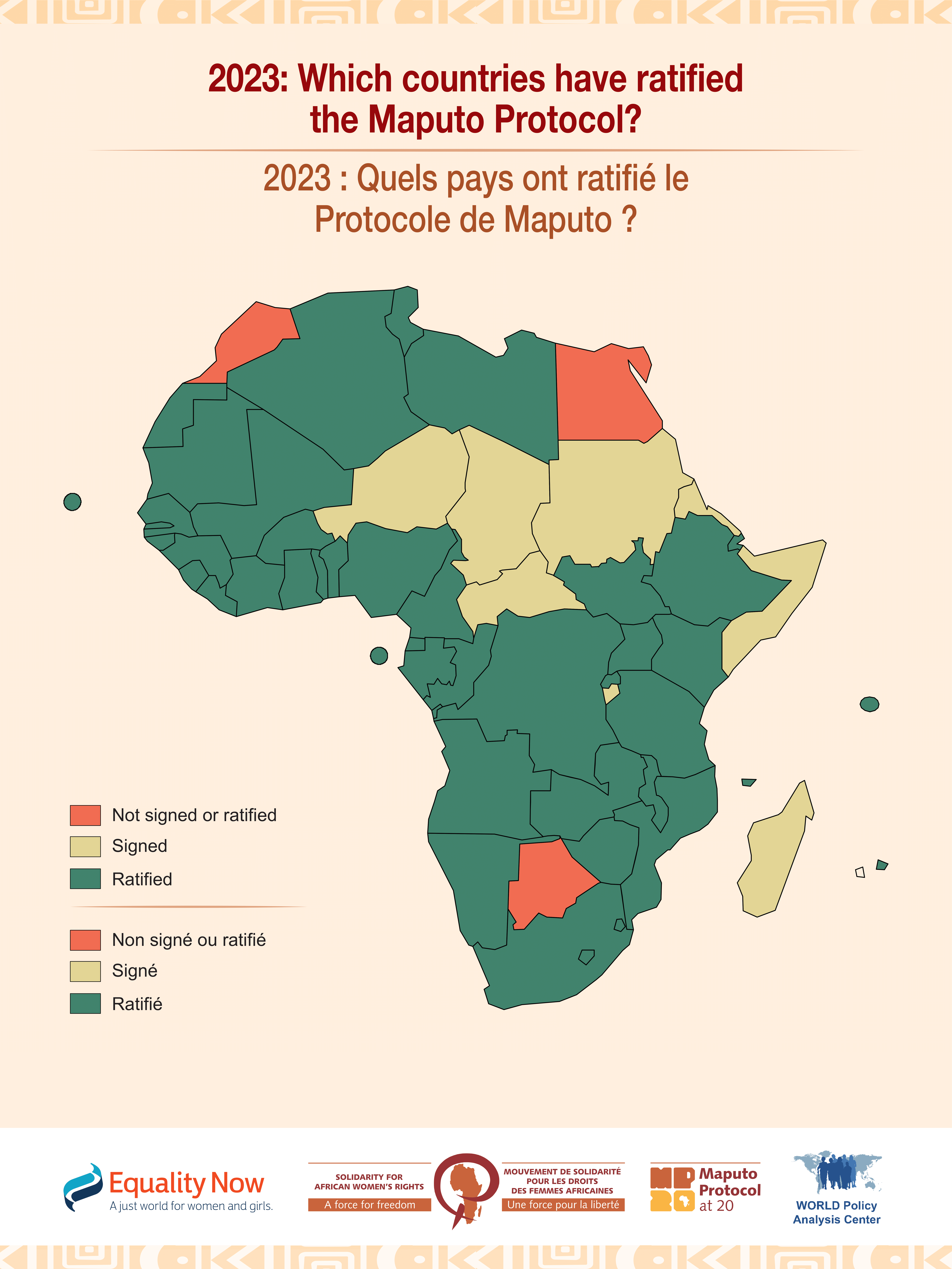
Constitutional right to gender equality
- Constitutions reflect the social and political character of nations and frame their legal and political systems. Constitutional guarantees can be used to demand greater equity in the delivery of and access to basic services, to challenge discriminatory legislation and practices, and to change social norms.
- For example, in Zimbabwe and Tanzania constitutional guarantees of gender equality have been used to declare that establishing lower ages of marriage for girls than boys is unconstitutional.
- As of 2022, 53 African countries take an approach to guaranteeing gender equality and non-discrimination in their constitution.
- However, 8 countries allow customary or religious law to supersede constitutional provisions which may undermine these constitutional guarantees of equality.
- Since 2003, 3 countries have introduced fundamental protections of gender equality in their national constitution.
Progress on constitutions explicitly guaranteeing equality or non-discrimination across sex and/or gender
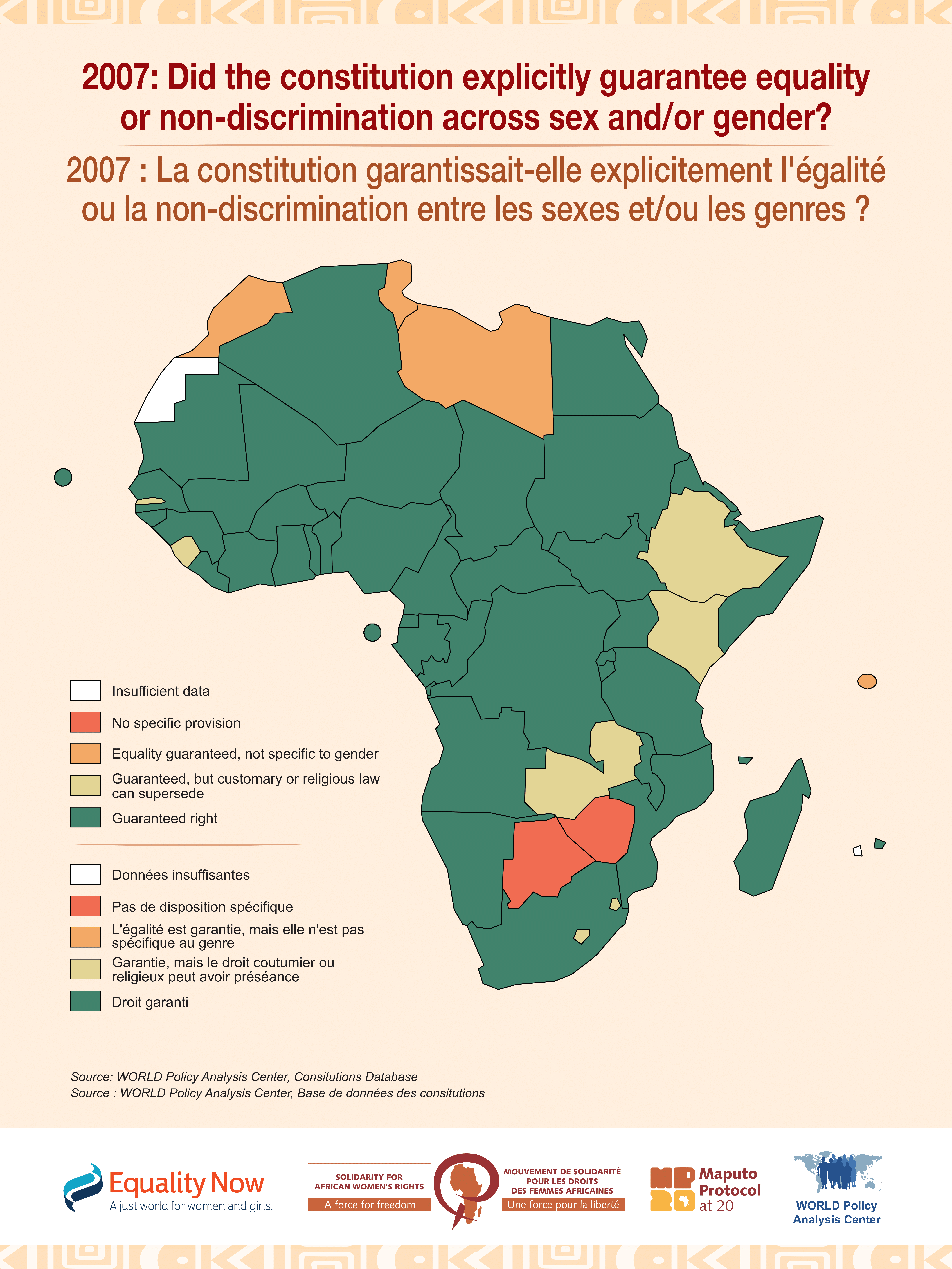
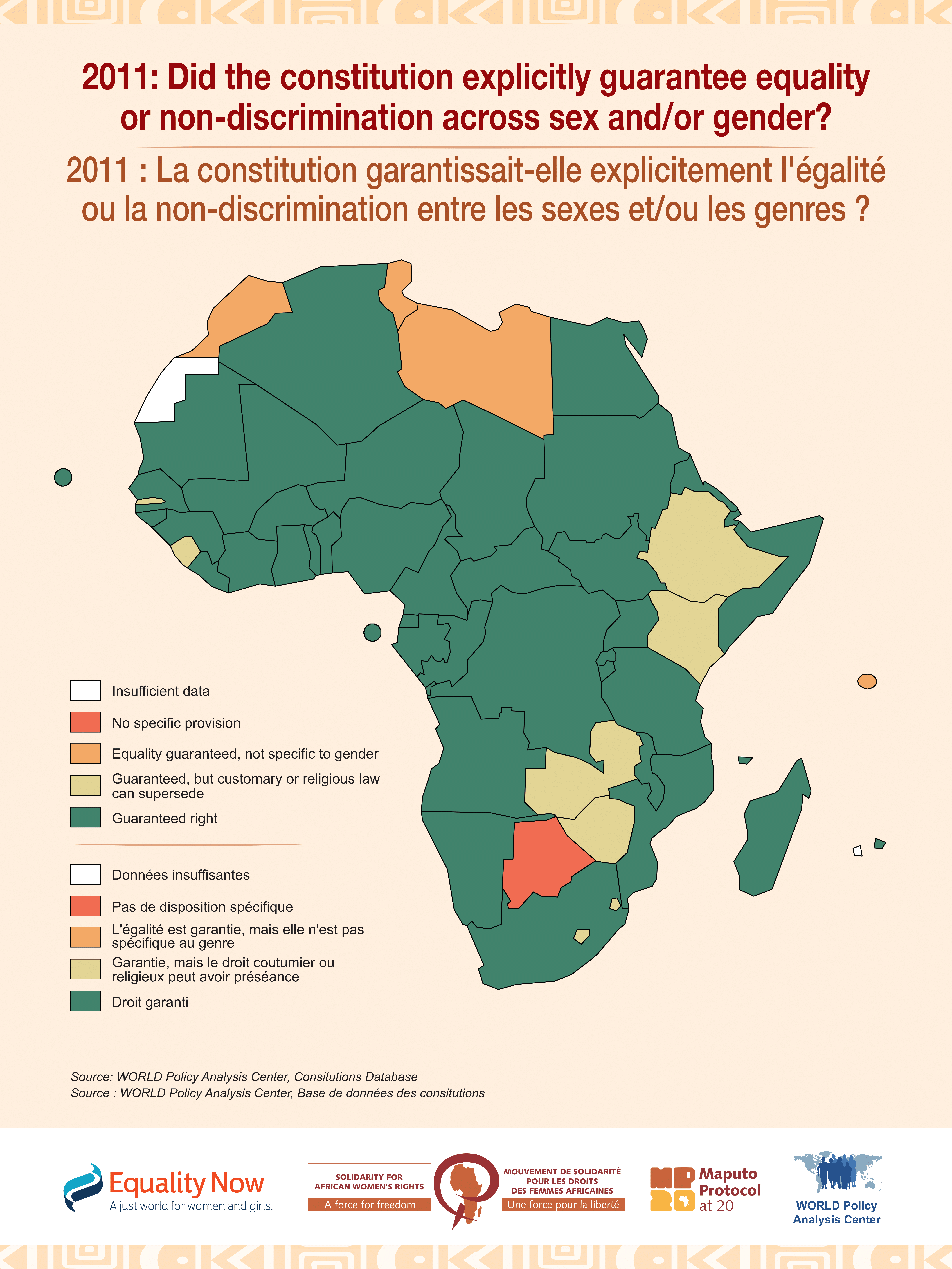
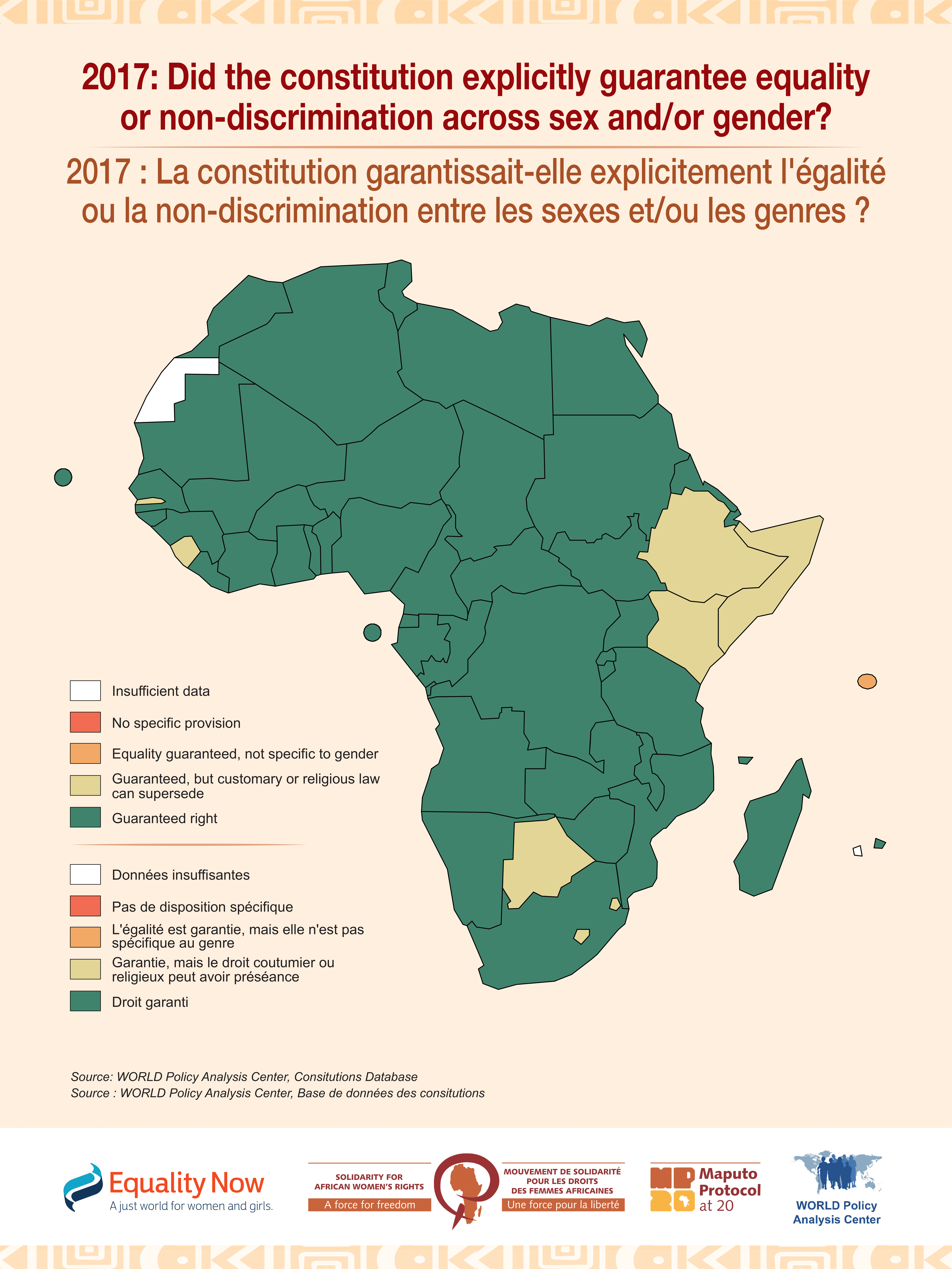
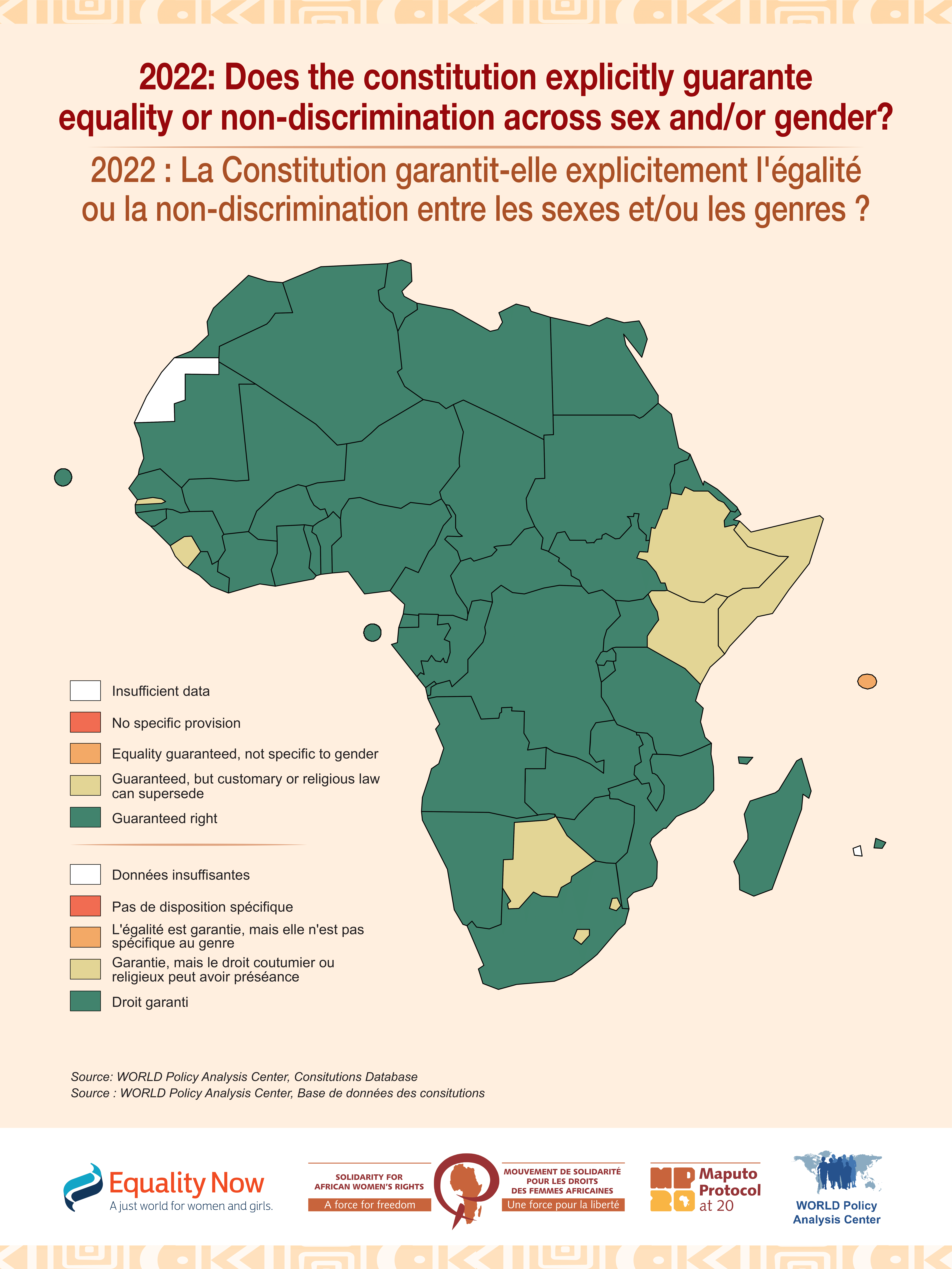
Laws prohibiting domestic violence
- Intimate partner violence (IPV) has vast consequences for women’s physical and mental health, employment, and overall wellbeing.
- Moreover, the consequences are intergenerational: children of women exposed to IPV have worse health and nutritional outcomes, and are more likely to perpetuate the cycle of violence in adulthood.
- Eliminating IPV will require both changing laws and changing norms and attitudes.
- As of 2021, 37 African countries have laws prohibiting domestic violence. However, in 4 of these countries domestic violence is prohibited, but not criminalised.
- Since 2003, 30 countries have introduced laws prohibiting domestic violence across the continent.
Progress on national legislation prohibiting and criminalising domestic violence
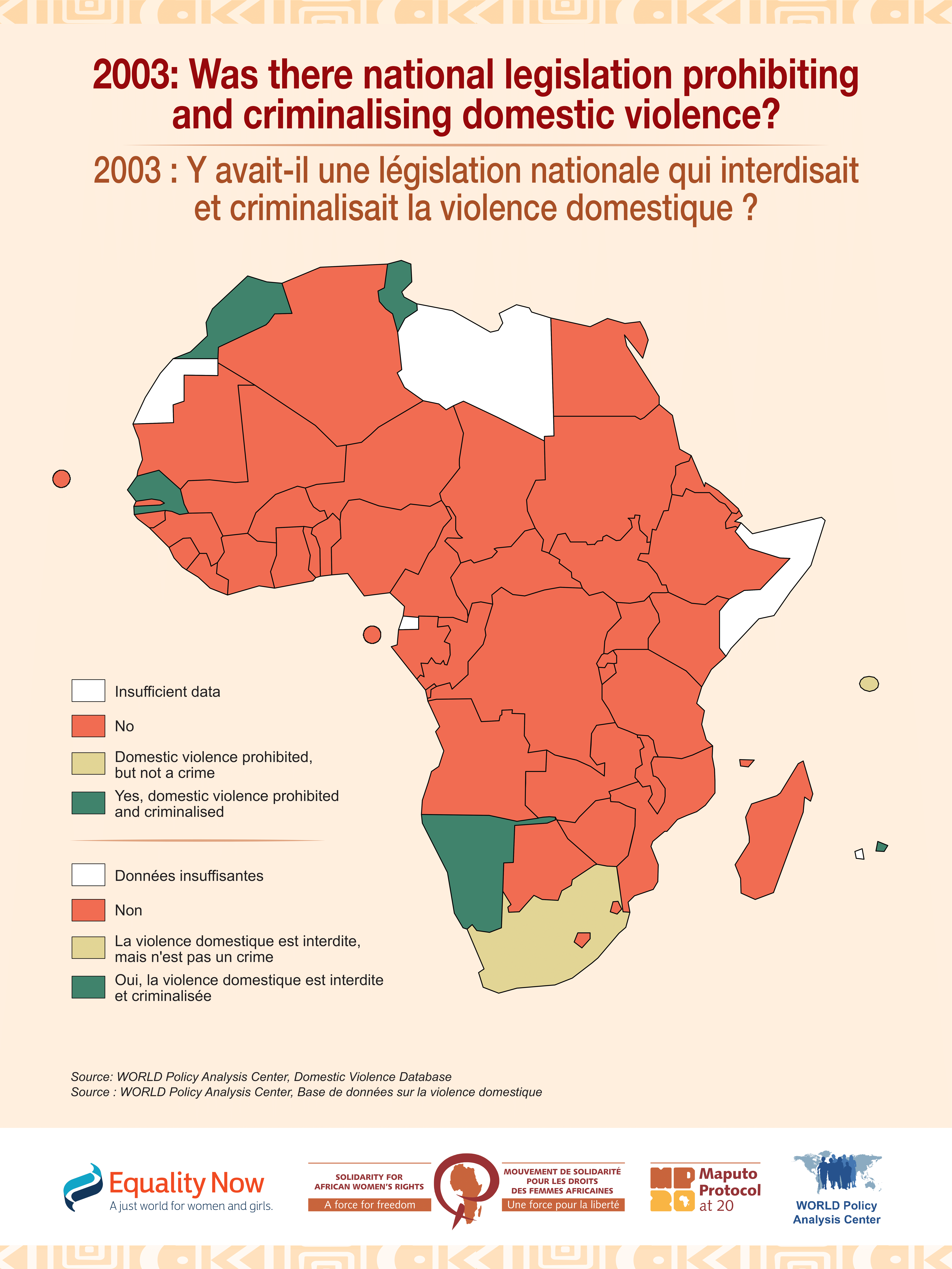
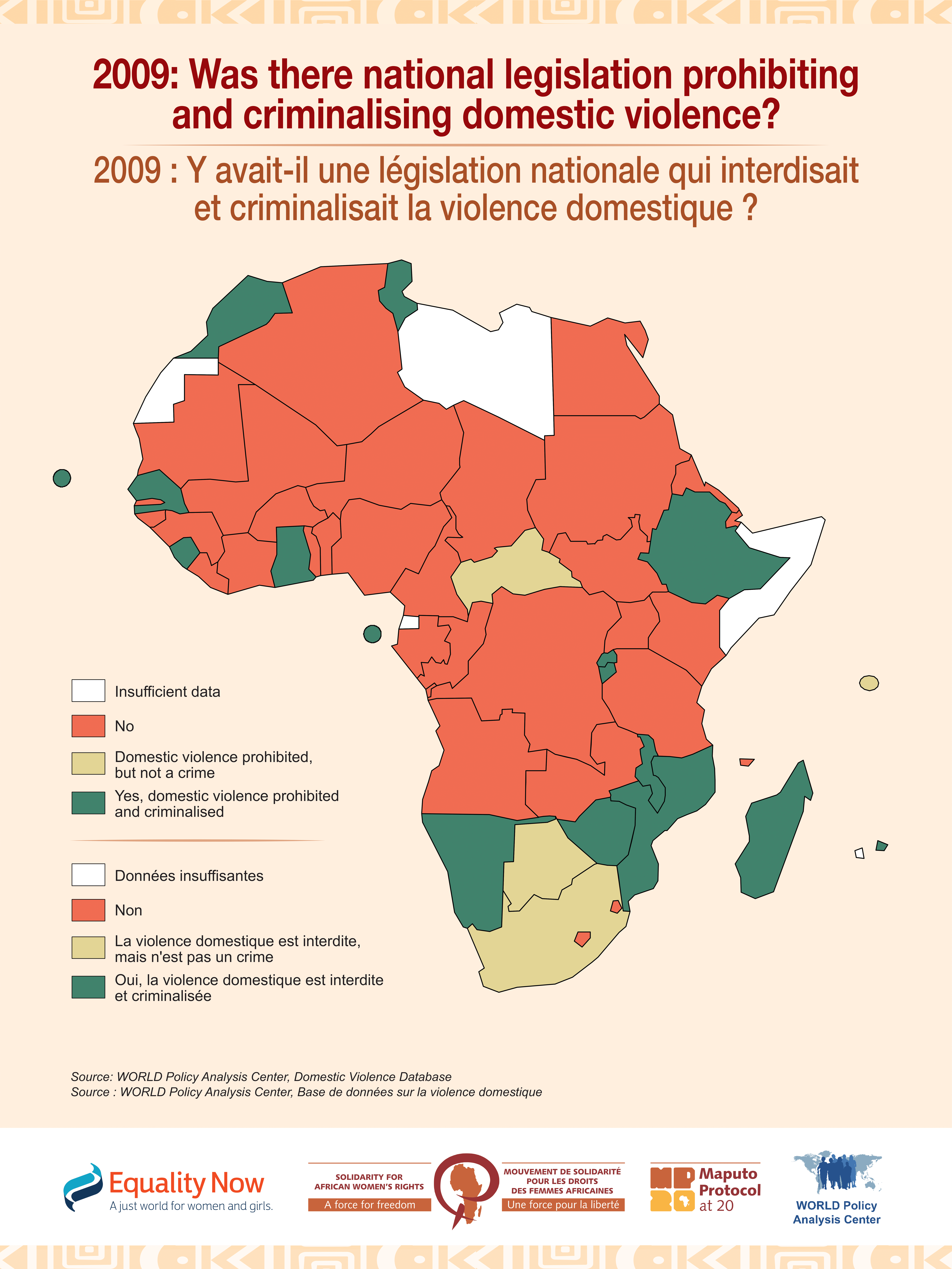
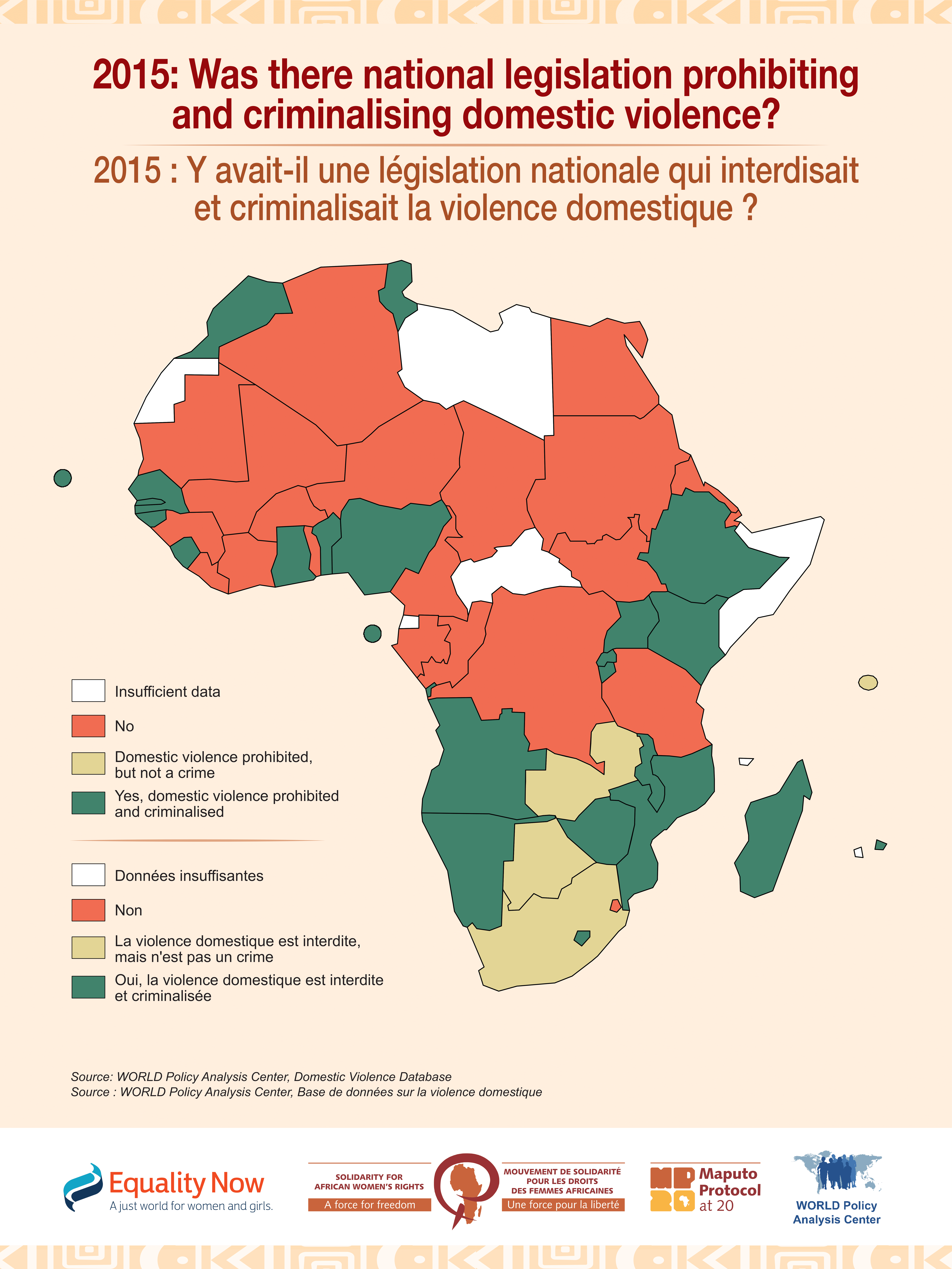
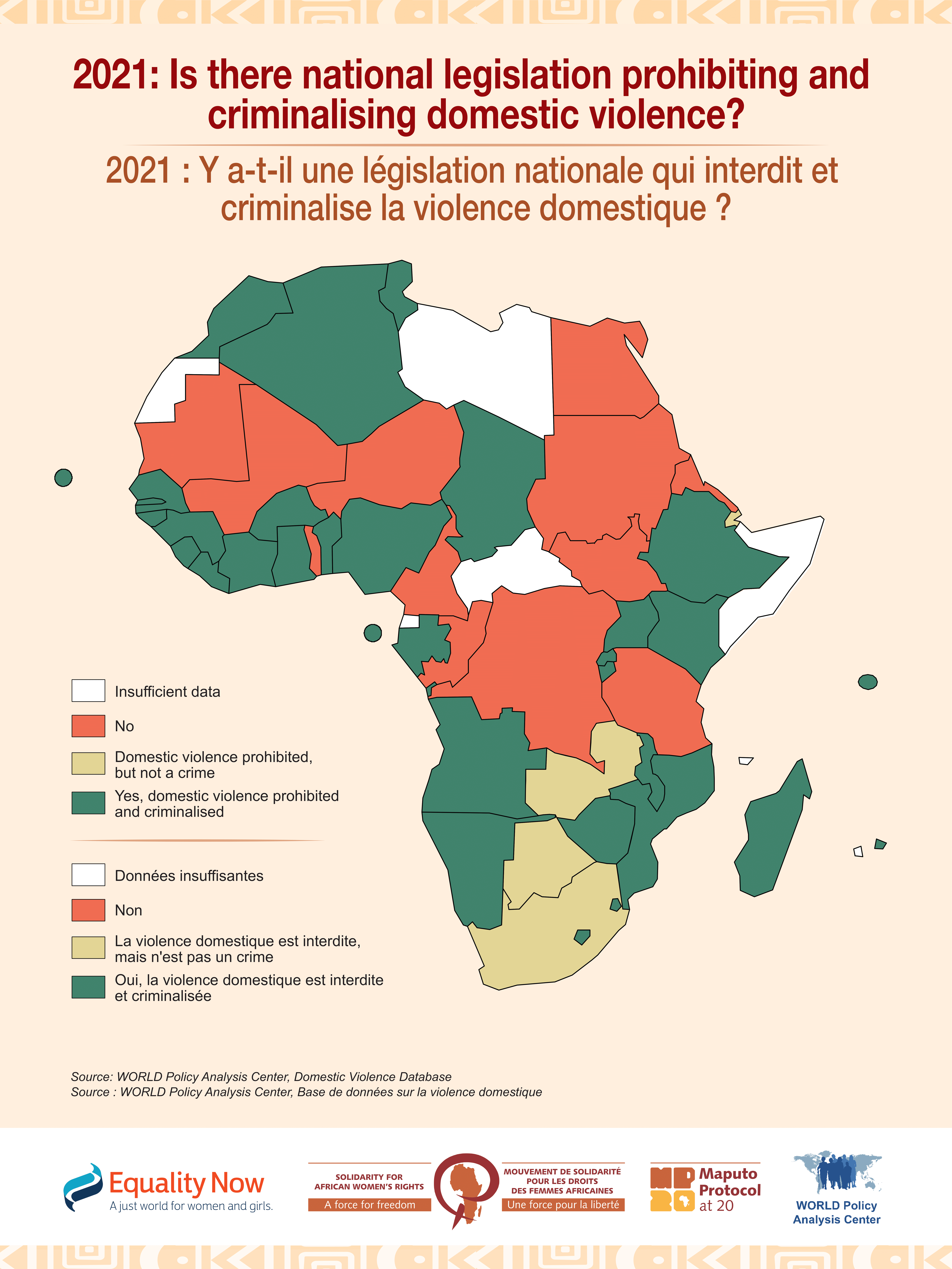
Legal minimum age of marriage
- Early marriage jeopardizes girls’ health due to abuse, limited control over their own bodies and their sexual and reproductive health decisions, and early pregnancy and childbearing.
- Early marriage also interferes with schooling, increasing the likelihood of dropping out of school, with life-long consequences for economic opportunities.
- Today, 51 African countries have passed laws establishing a legal minimum age of marriage of at least 18 years old for girls.
- But in 20 countries legal loopholes undermine these protections, allowing girls to be legally married at younger ages with parental consent or under religious or customary law.
- Moreover, while child marriage is overwhelmingly a girl marriage problem, 15 countries continue to embed this gender inequality in law, legally allowing girls to be married at a younger age than boys with parental consent.
- However, progress since 2003 has been substantial.
- Over the past two decades, 14 countries have removed laws that said girls had less protection than boys from early marriage.
- Twenty countries have passed laws that protect girls from early marriage without legal loopholes.
Progress on gender difference in the legal minimum age of marriage with parental consent
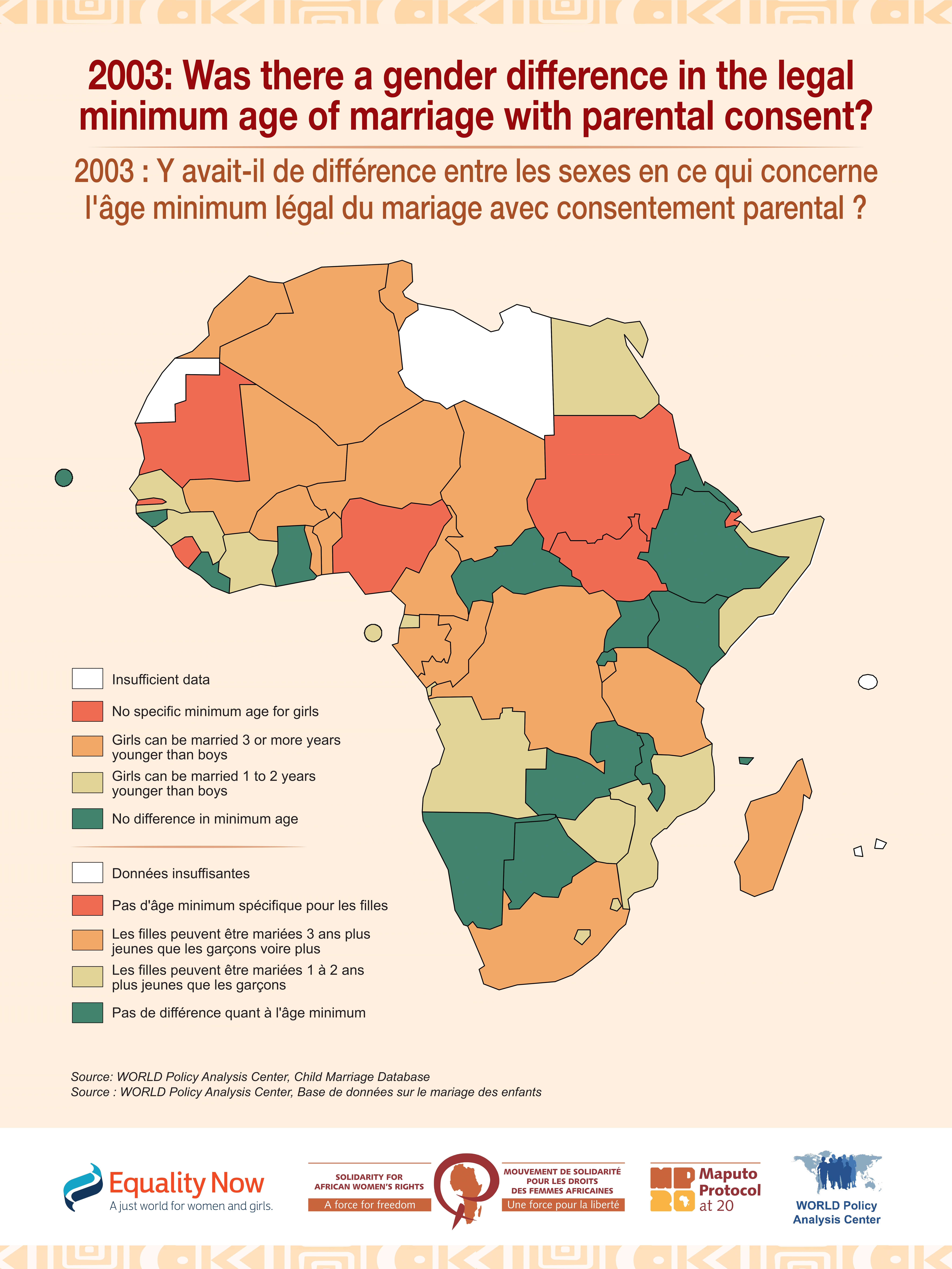
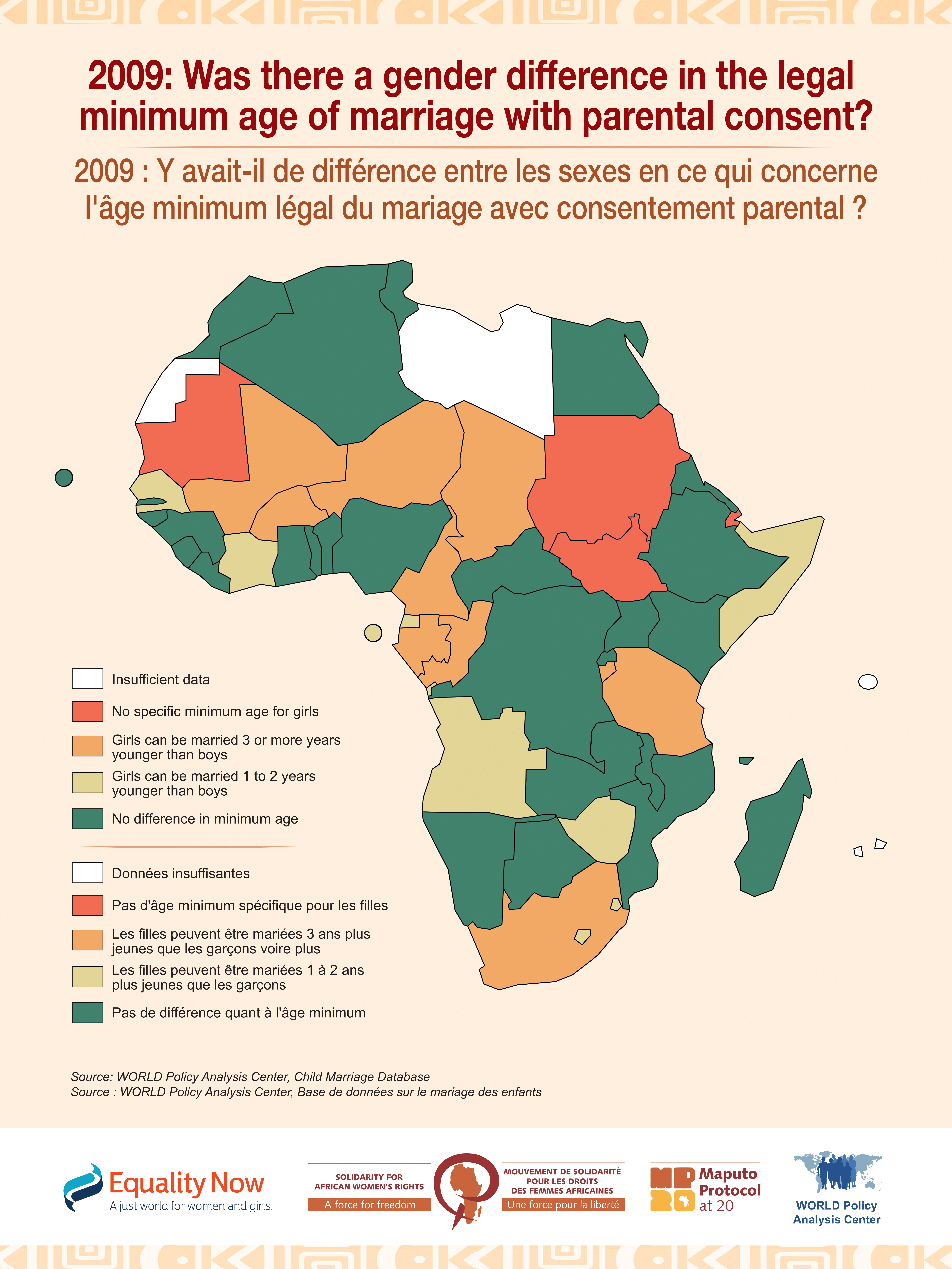
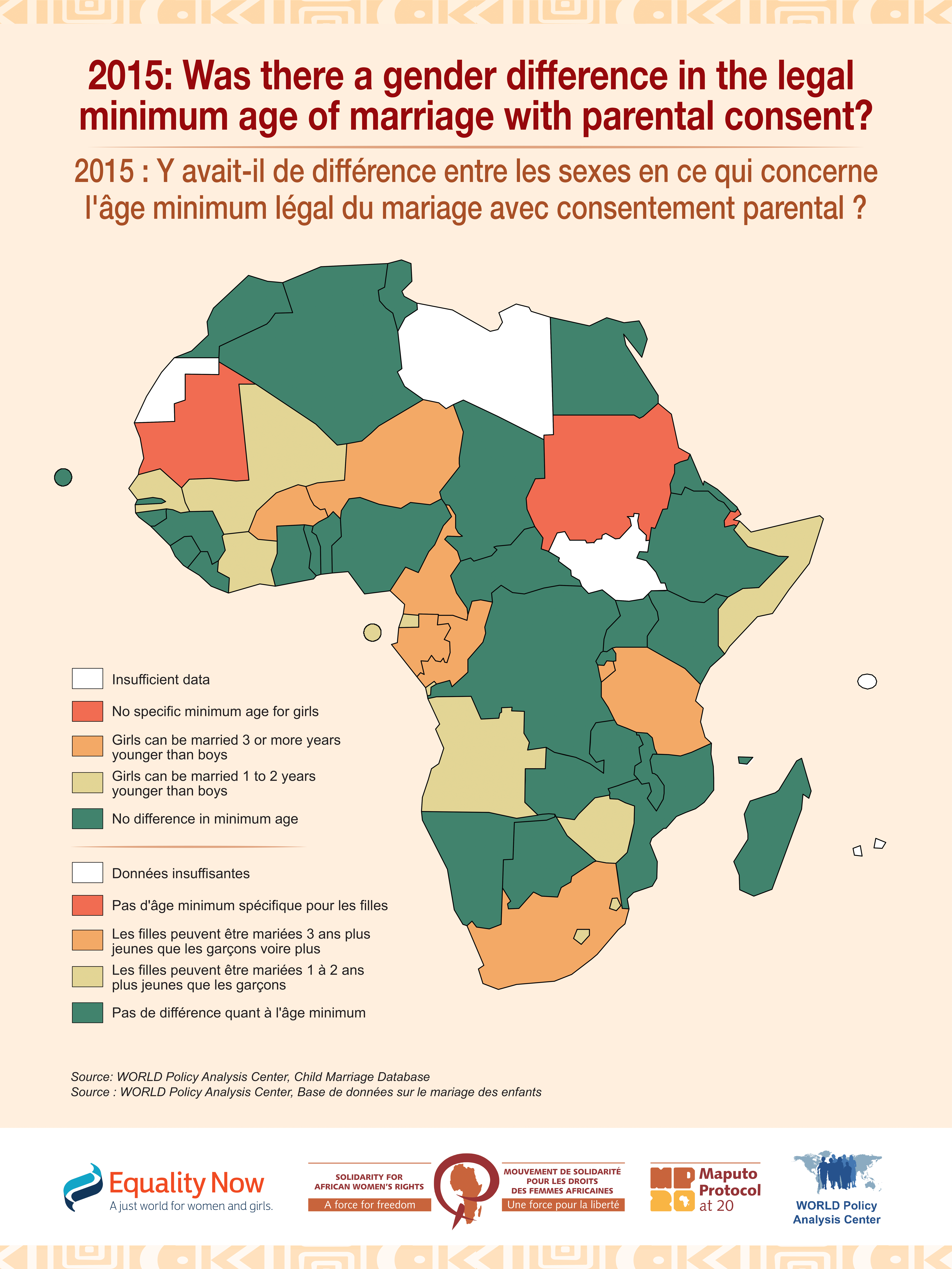
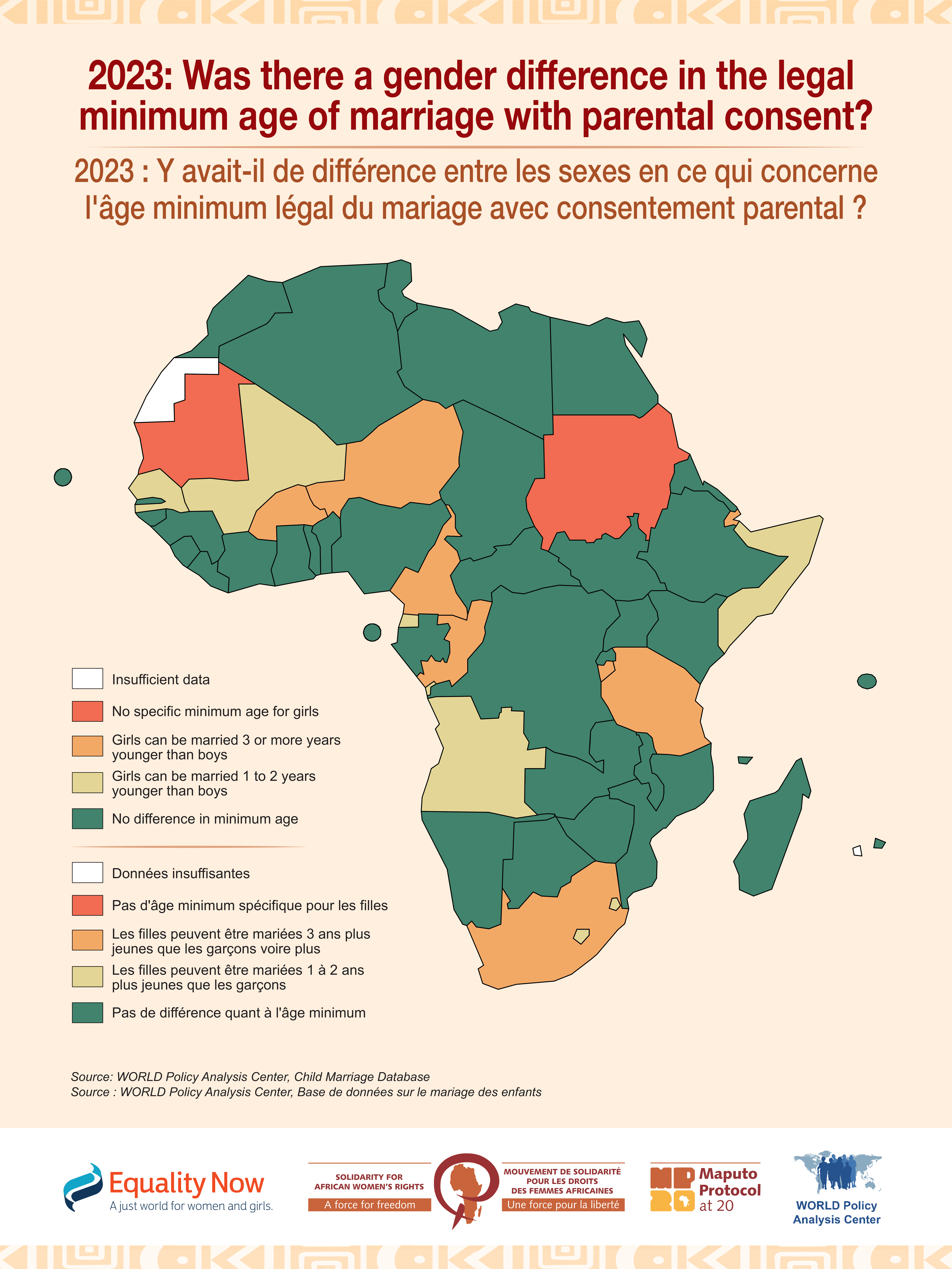
Progress on loopholes enabling child marriage
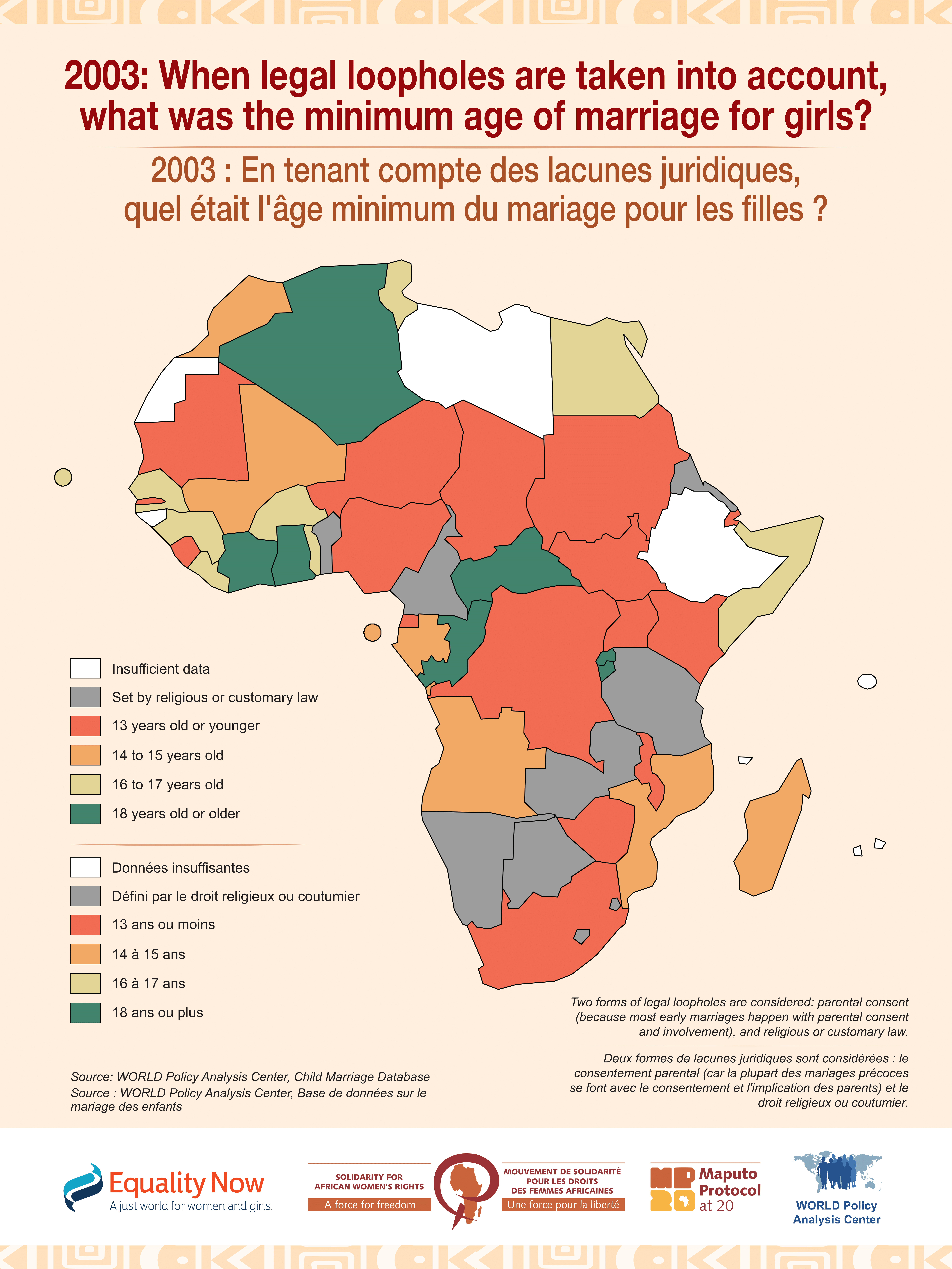
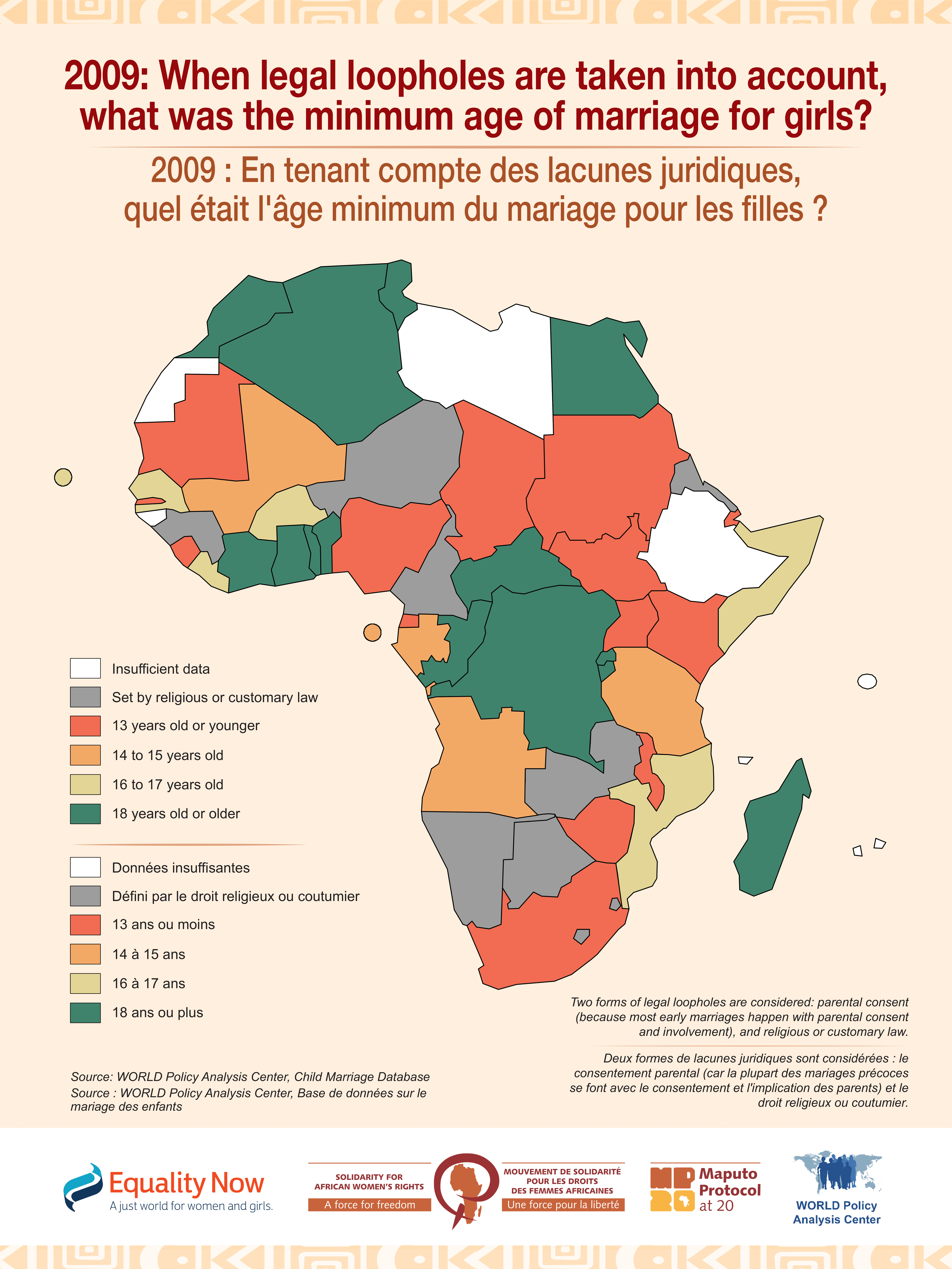
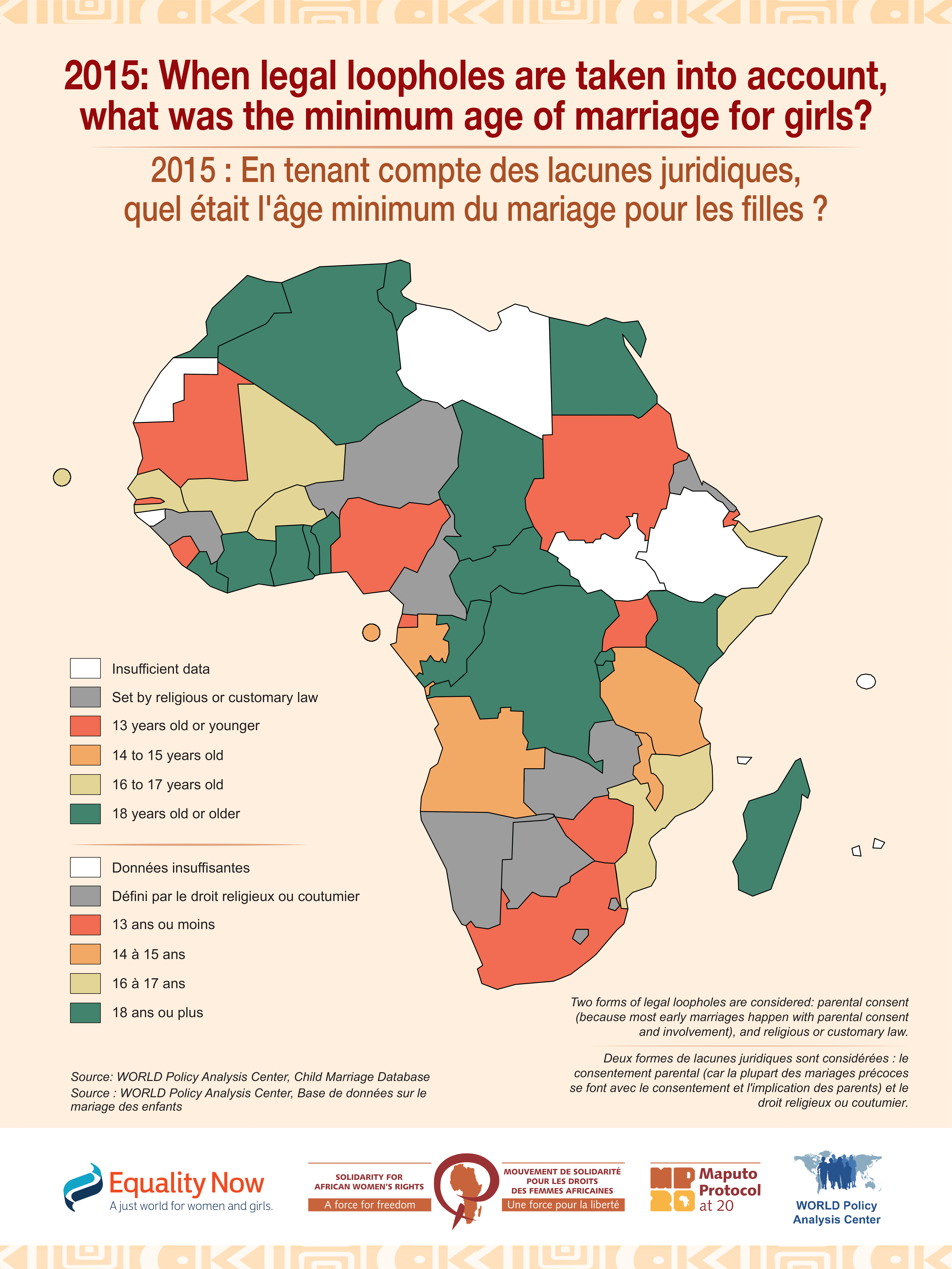
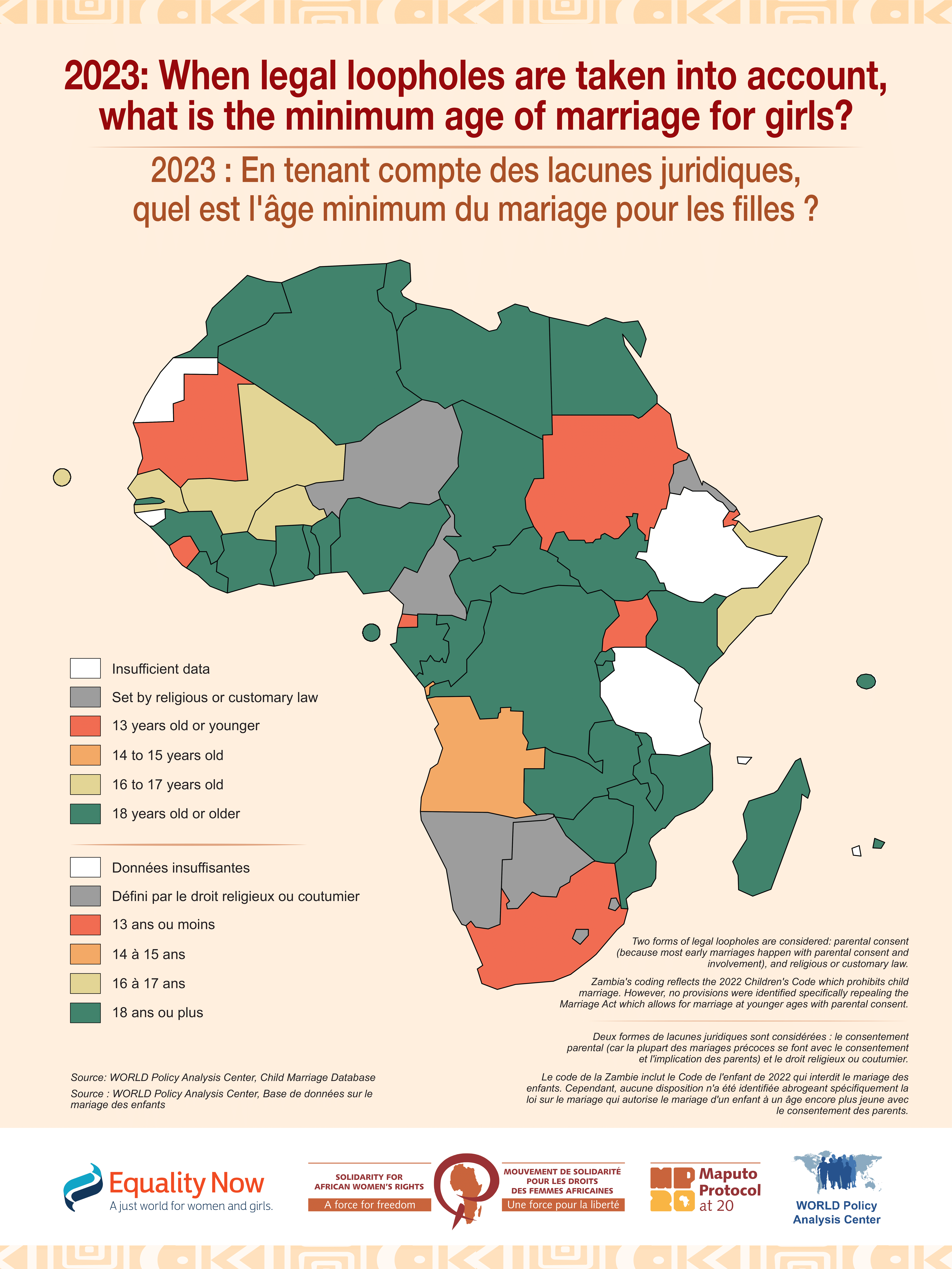
Paid leave for parents of infants
- Paid leave for mothers of infants has wide-ranging benefits for women’s employment, maternal health, and infant health.
- When women are able to stay in the workforce, entire economies benefit. Among countries that have provided paid leave for mothers of infants for the past few decades, rates of female employment have boosted GDP per capita growth by 10 – 20%.
- Paid leave for fathers of infants is likewise important for supporting gender equality in caregiving and shifting norms around who provides work and care.
- All African countries guarantee paid leave to mothers of infants, and nearly all have done so for the past two decades.
- The duration of paid leave available to mothers has increased over time. As of 2022, two countries now guarantee 26 weeks of paid leave to mothers of infants which facilitates six months of exclusive breastfeeding as recommended by the World Health Organization.
- 31 countries provide women at least 14 weeks of paid leave (the minimum standard of the International Labor Organization), compared to just 21 countries in 2003.
Progress on paid maternal leave
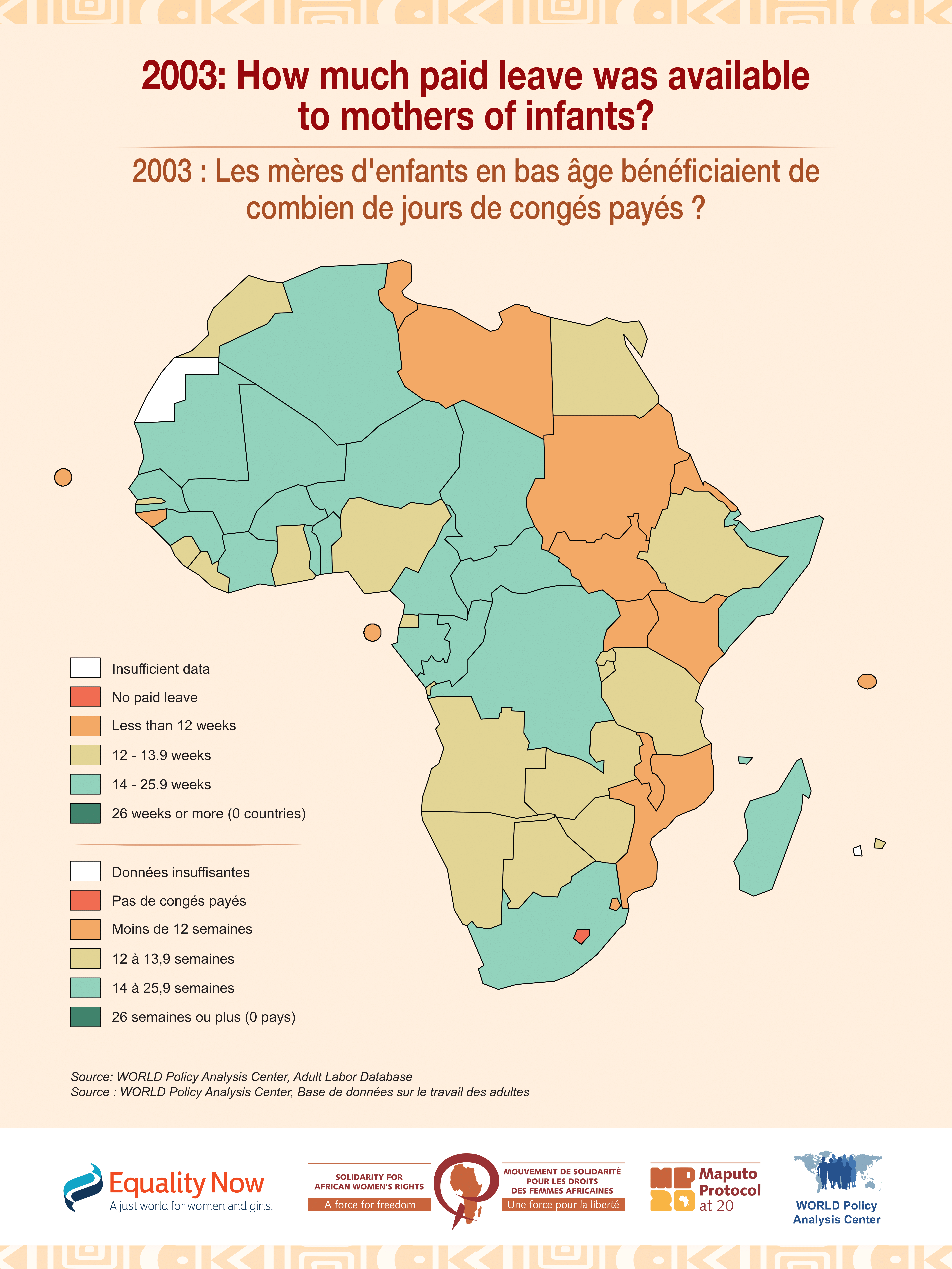
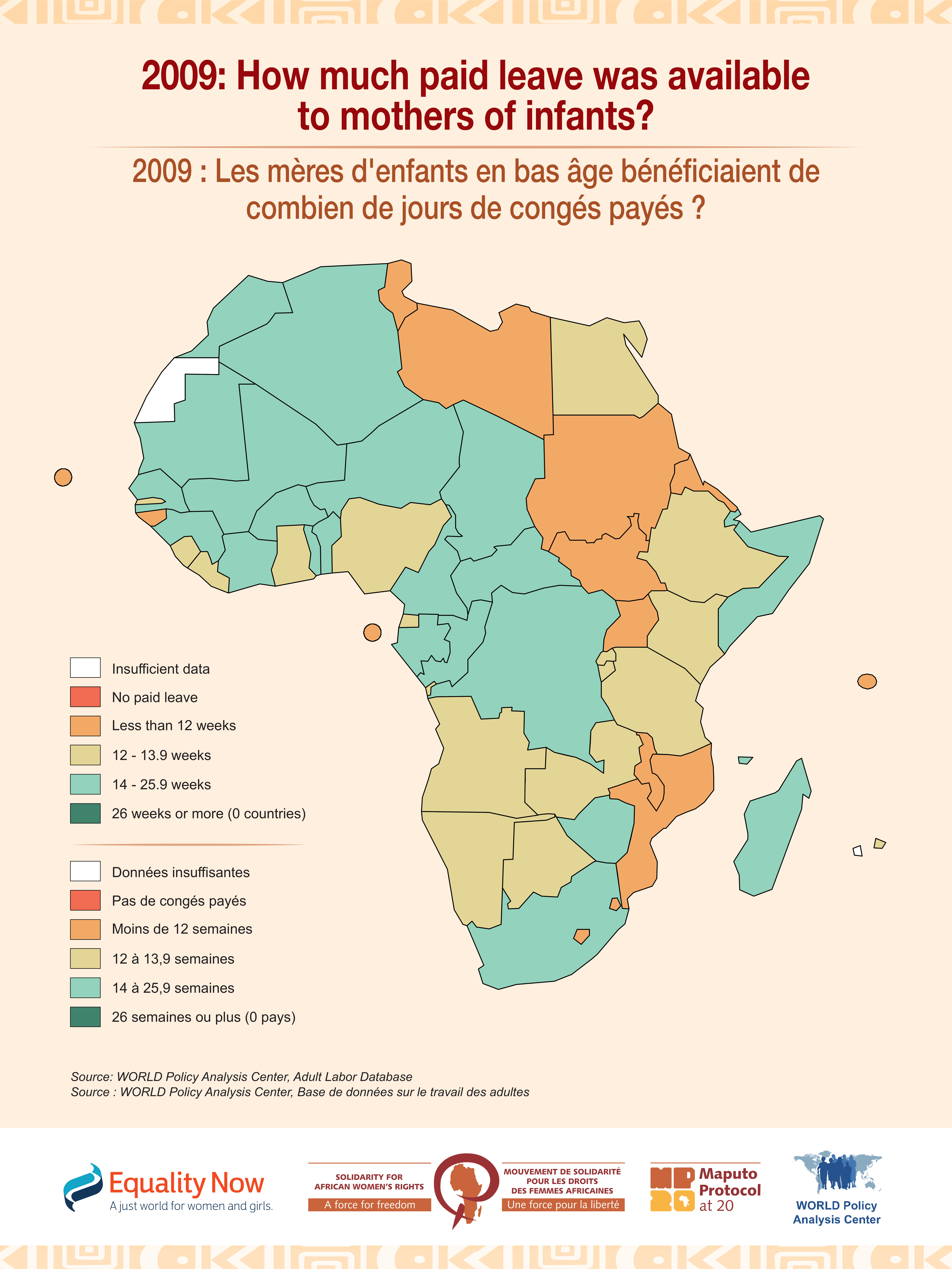
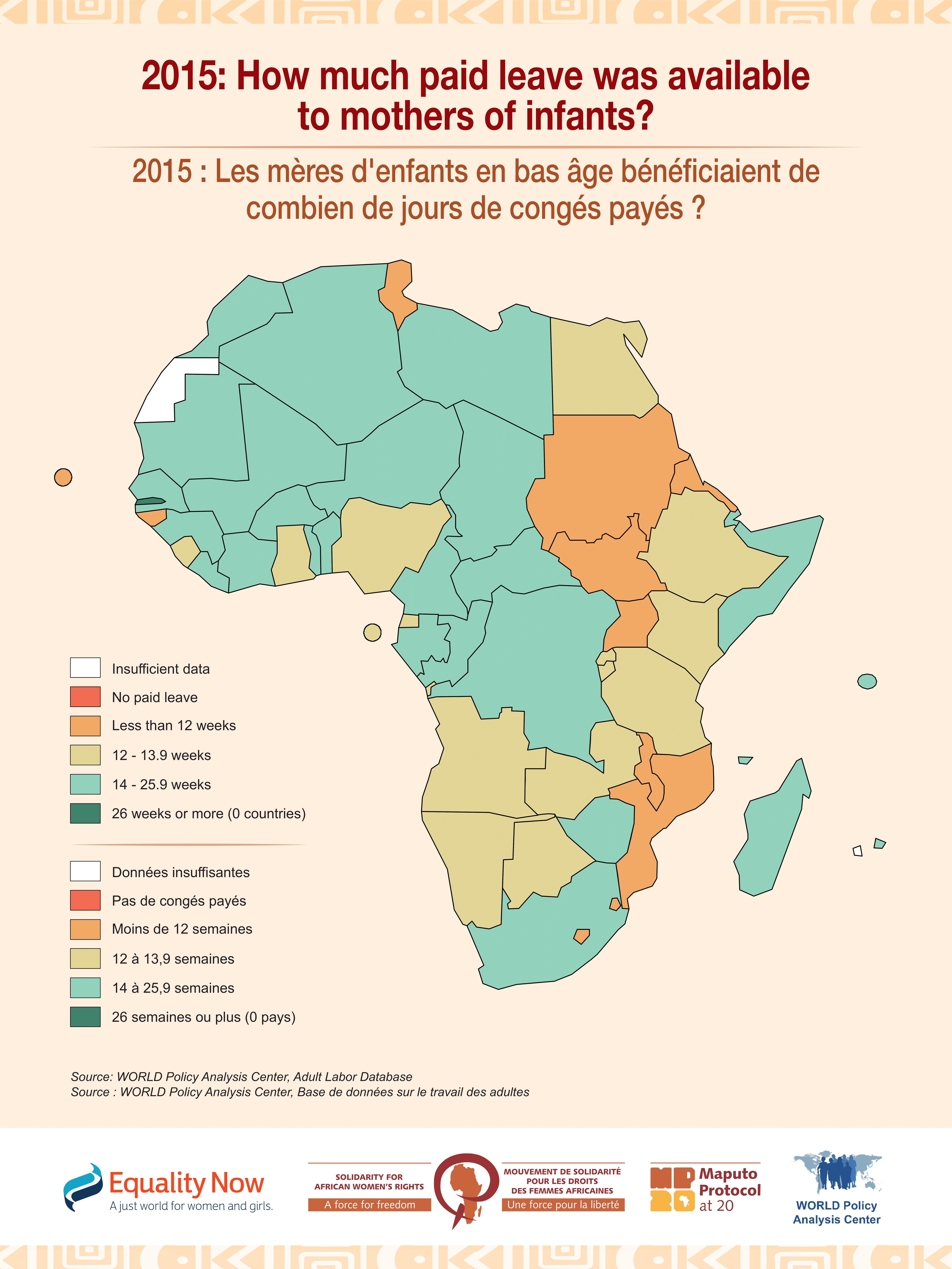
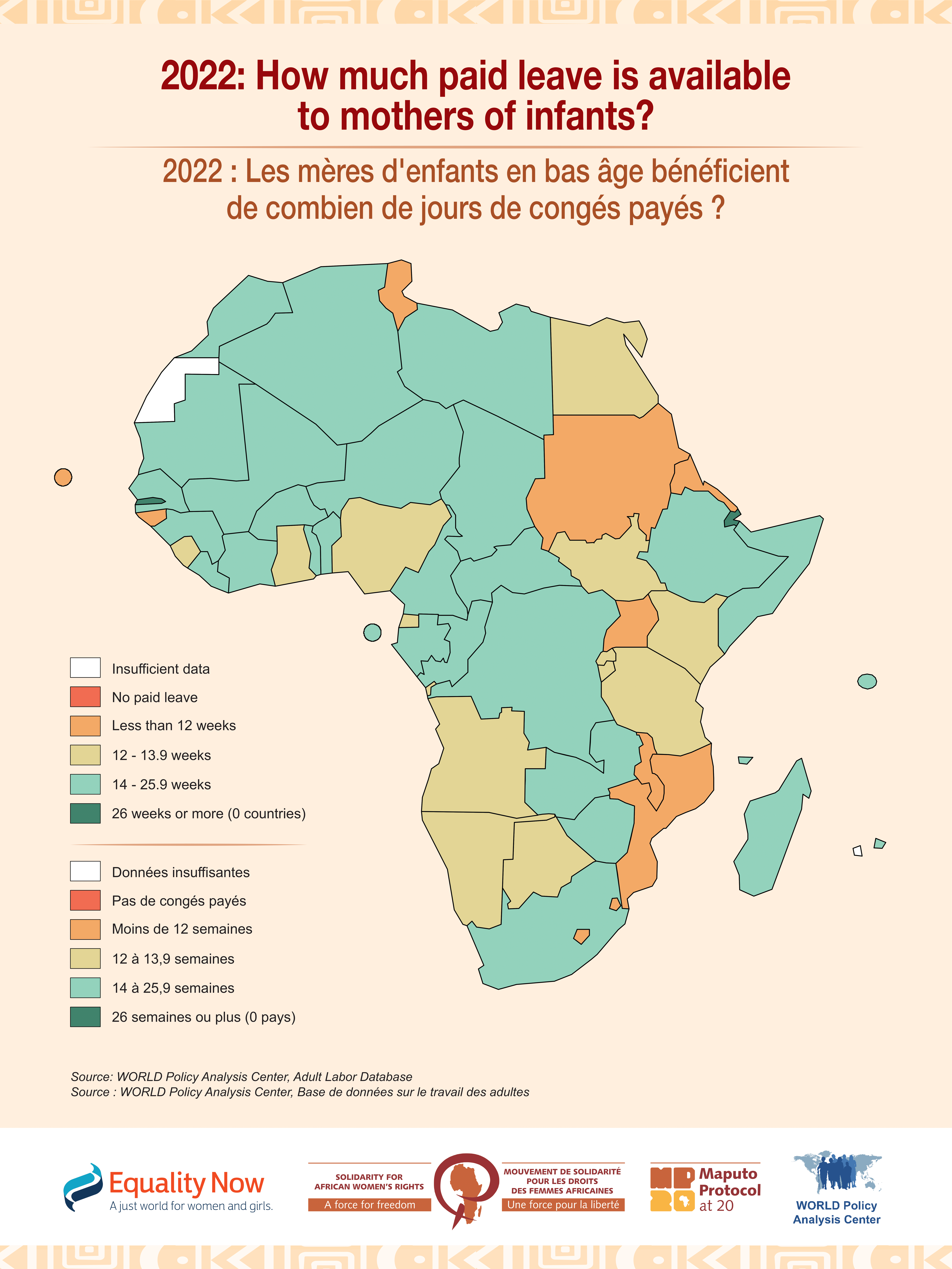
Laws prohibiting discrimination and sexual harassment at work
- Gender discrimination and sexual harassment can have profound impacts on employment trajectories, economic security, and health that are compounded by other vulnerabilities for marginalized women.
- Legally prohibiting discrimination and sexual harassment at work is an important first step towards equality at work: a study of 141 countries found that laws prohibiting gender discrimination in employment had a positive effect on women’s labor force participation in formal jobs.
- But for laws prohibiting gender discrimination or sexual harassment at work to have real impact, protections against retaliation for initiating or supporting a claim are essential for discrimination laws to achieve their intended impacts.
- As of 2023, 52 African countries have taken the first step of prohibiting at least some aspect of gender discrimination at work. However, only 43 countries have legally prohibited sexual harassment at work.
- Seventeen African countries prohibit gender discrimination, but have yet to ensure any protection from retaliation for reporting gender discrimination; 15 countries prohibit sexual harassment but fail to ensure any protection from retaliation for reporting it.
- Since 2003, 8 countries newly introduced laws prohibiting gender discrimination at work, and 7 that had existing laws added protections from retaliation for reporting discrimination.
- Over the past two decades, 27 countries newly introduced legislation prohibiting sexual harassment at work, and 4 with existing laws introduced protections from retaliation for reporting sexual harassment.
Progress on protections for reporting gender discrimination at work
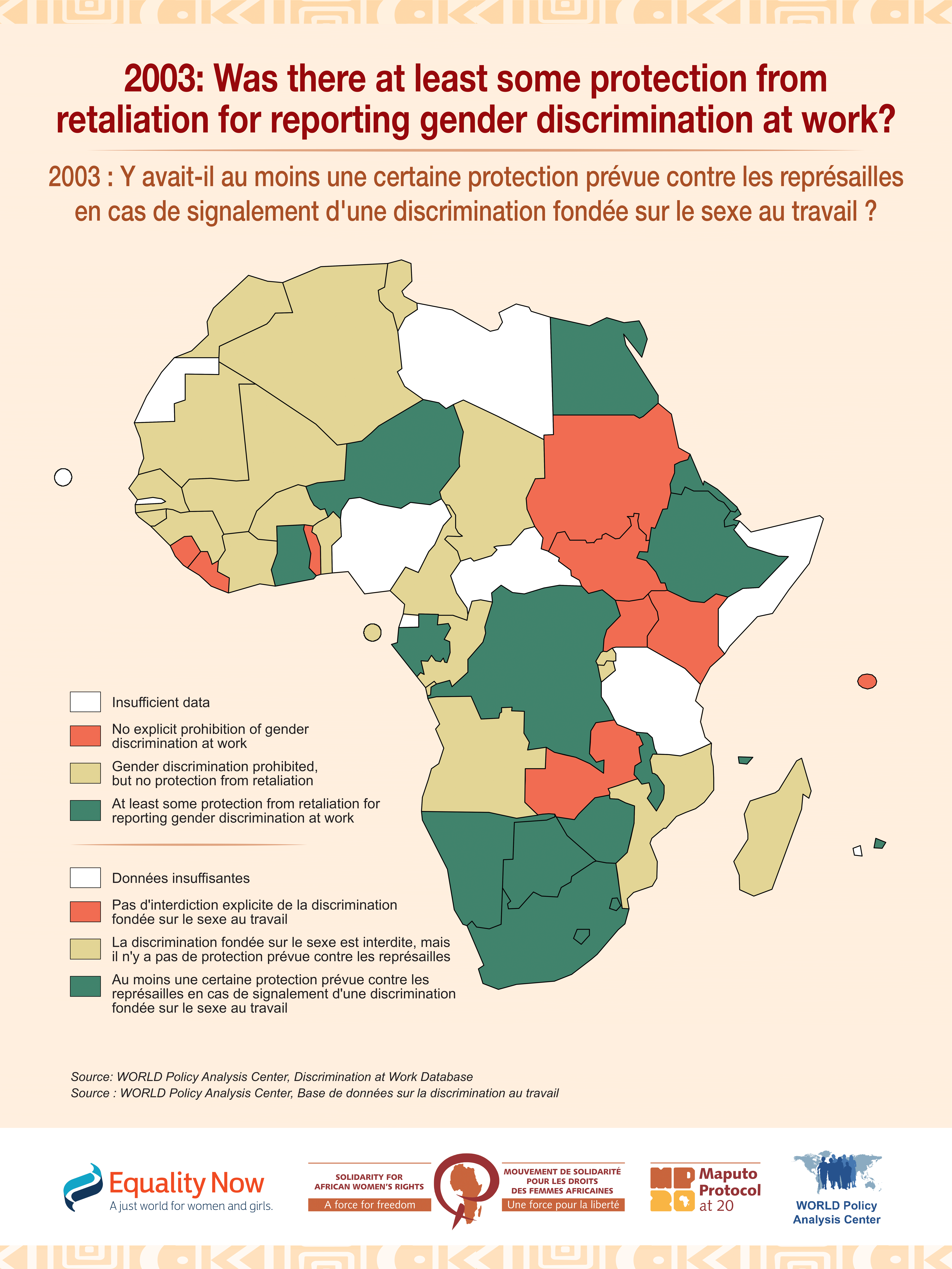
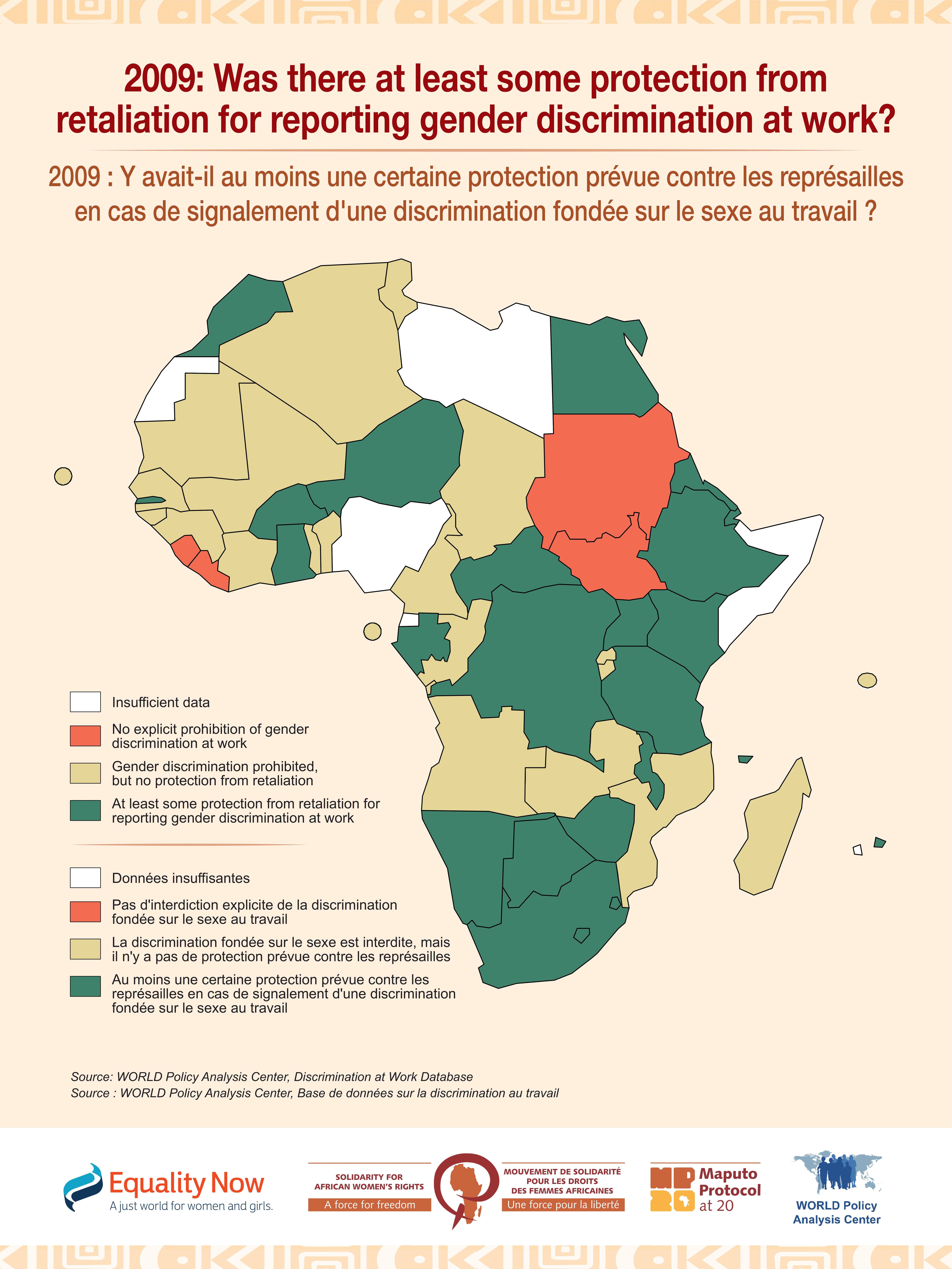
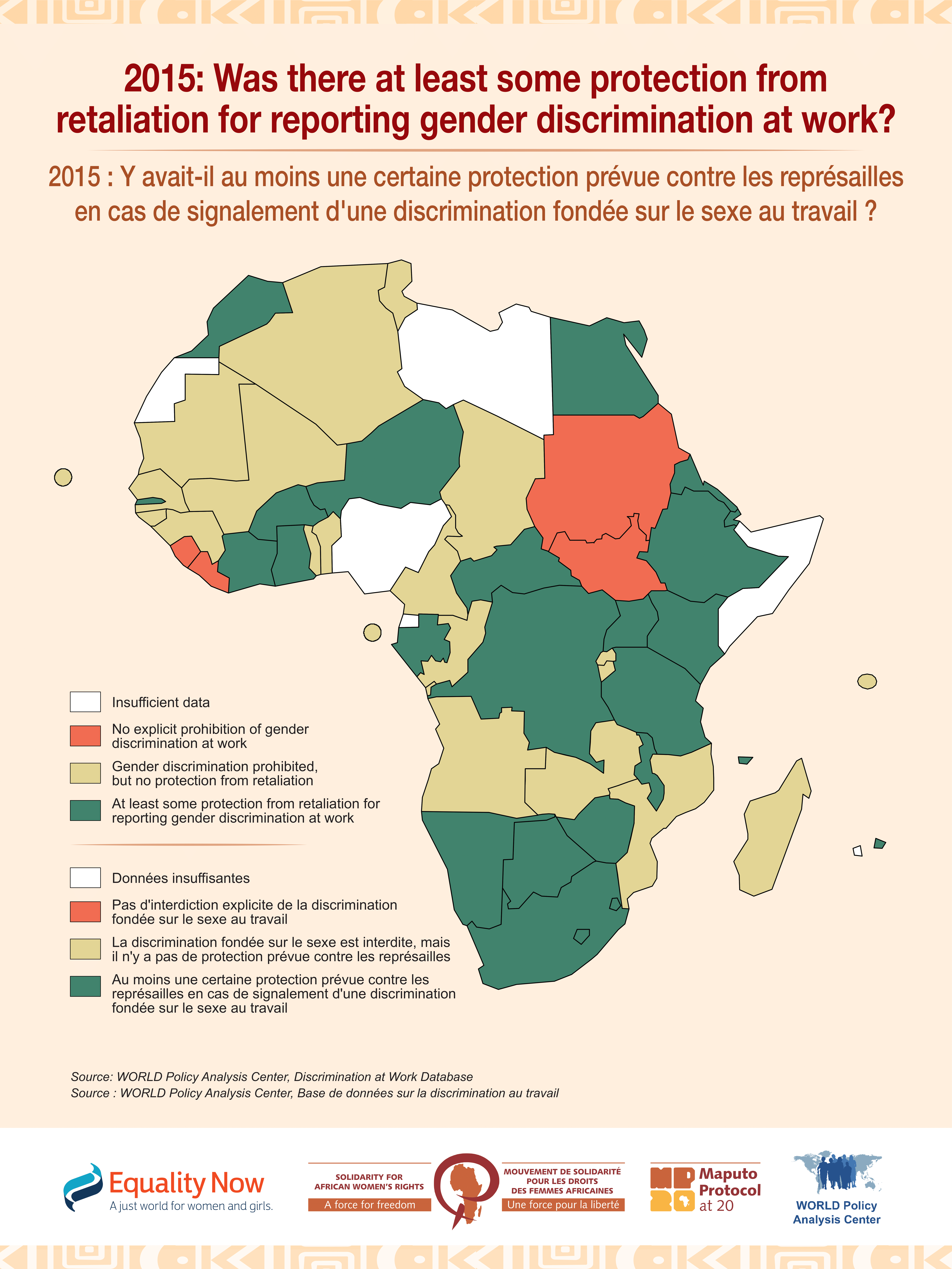
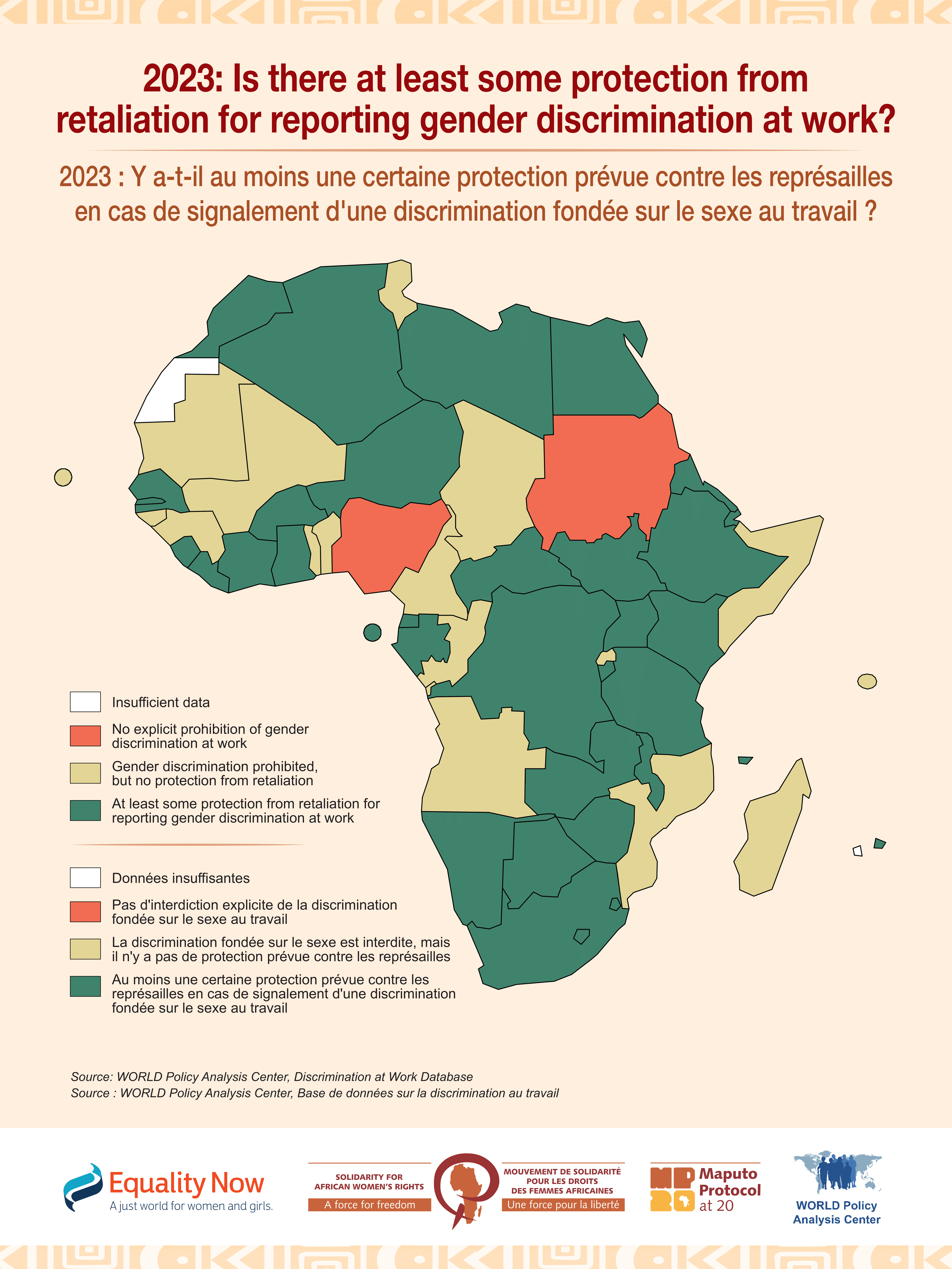
Progress on protections from reporting sexual harassment at work
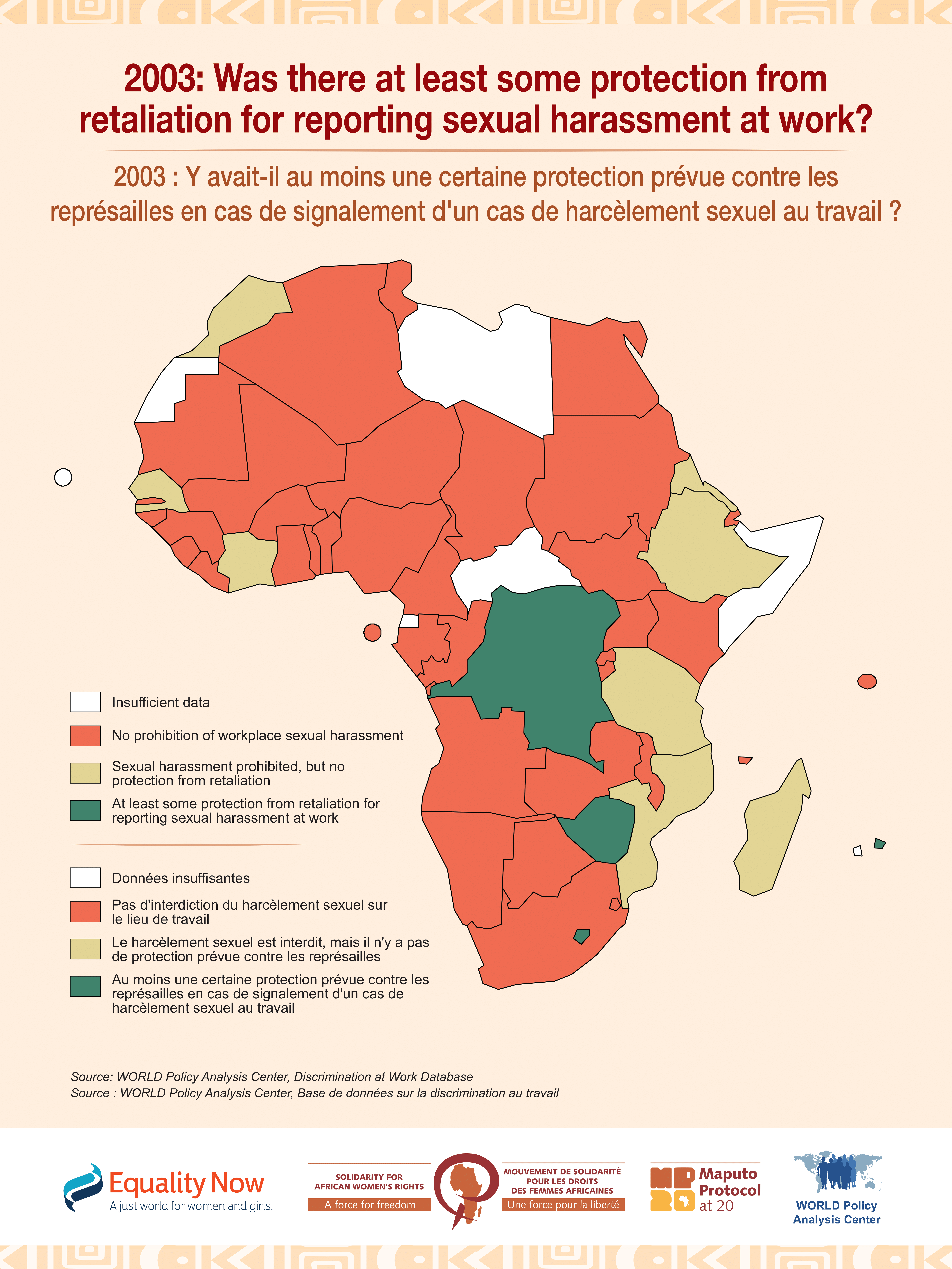
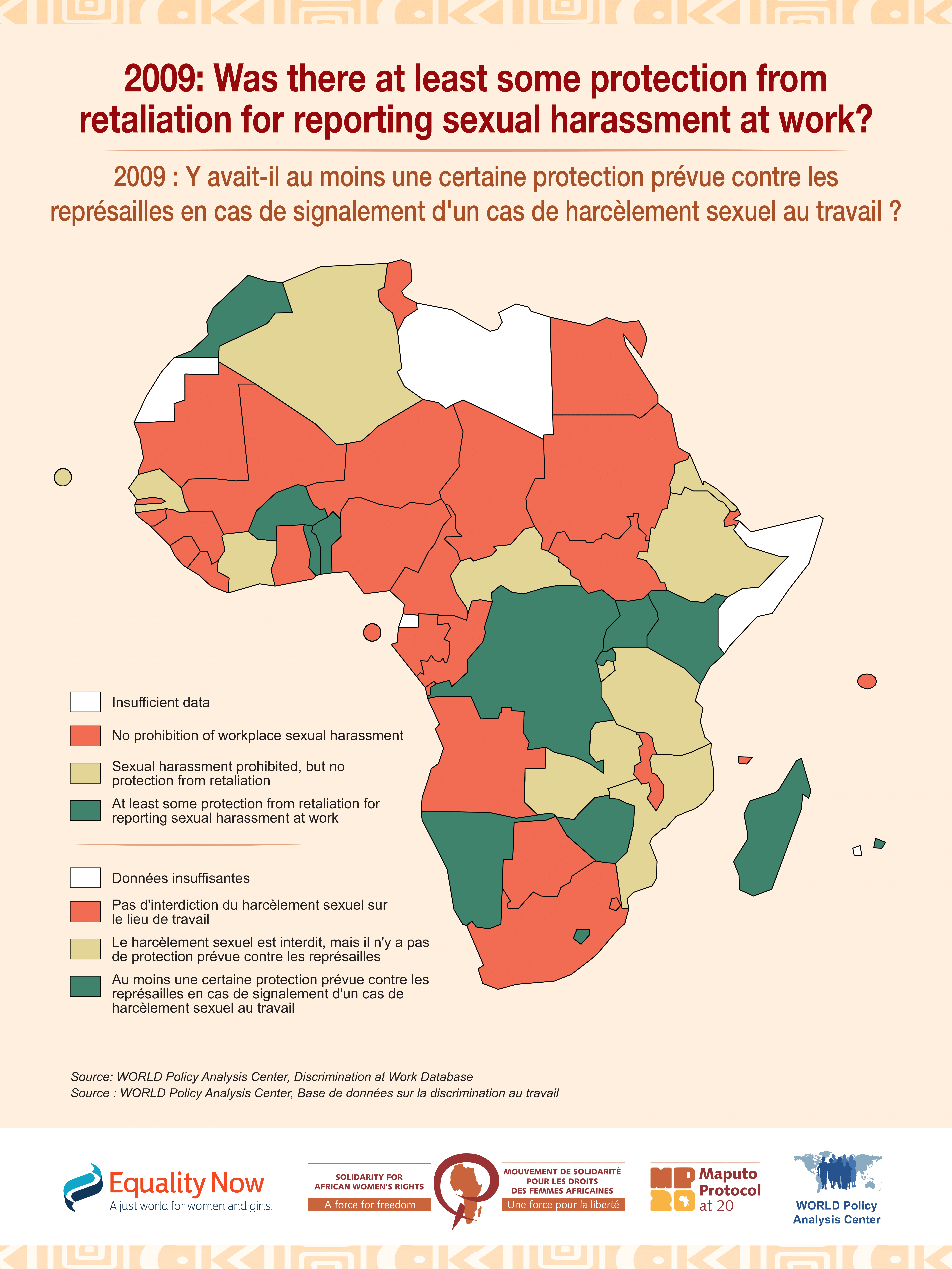
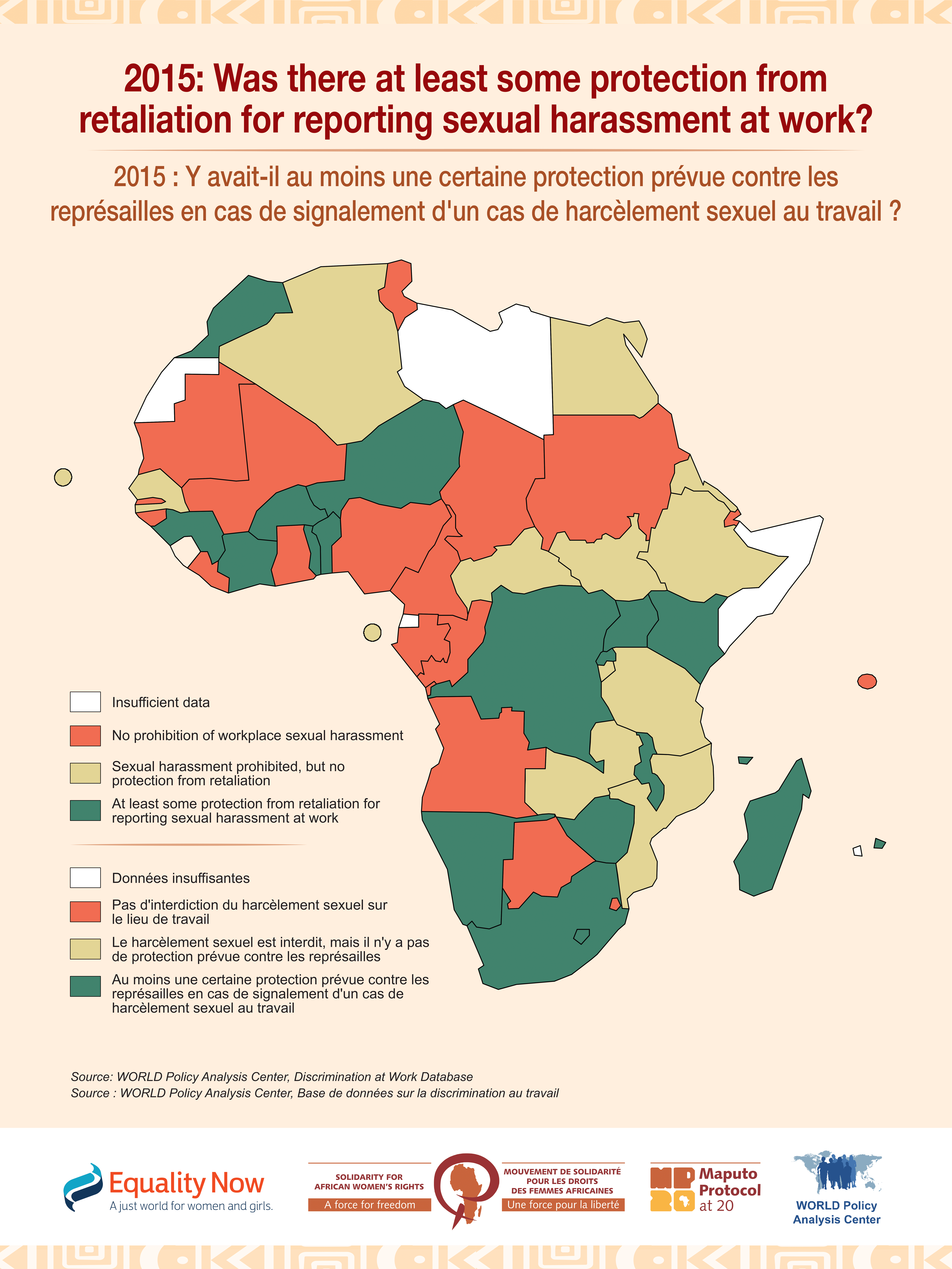
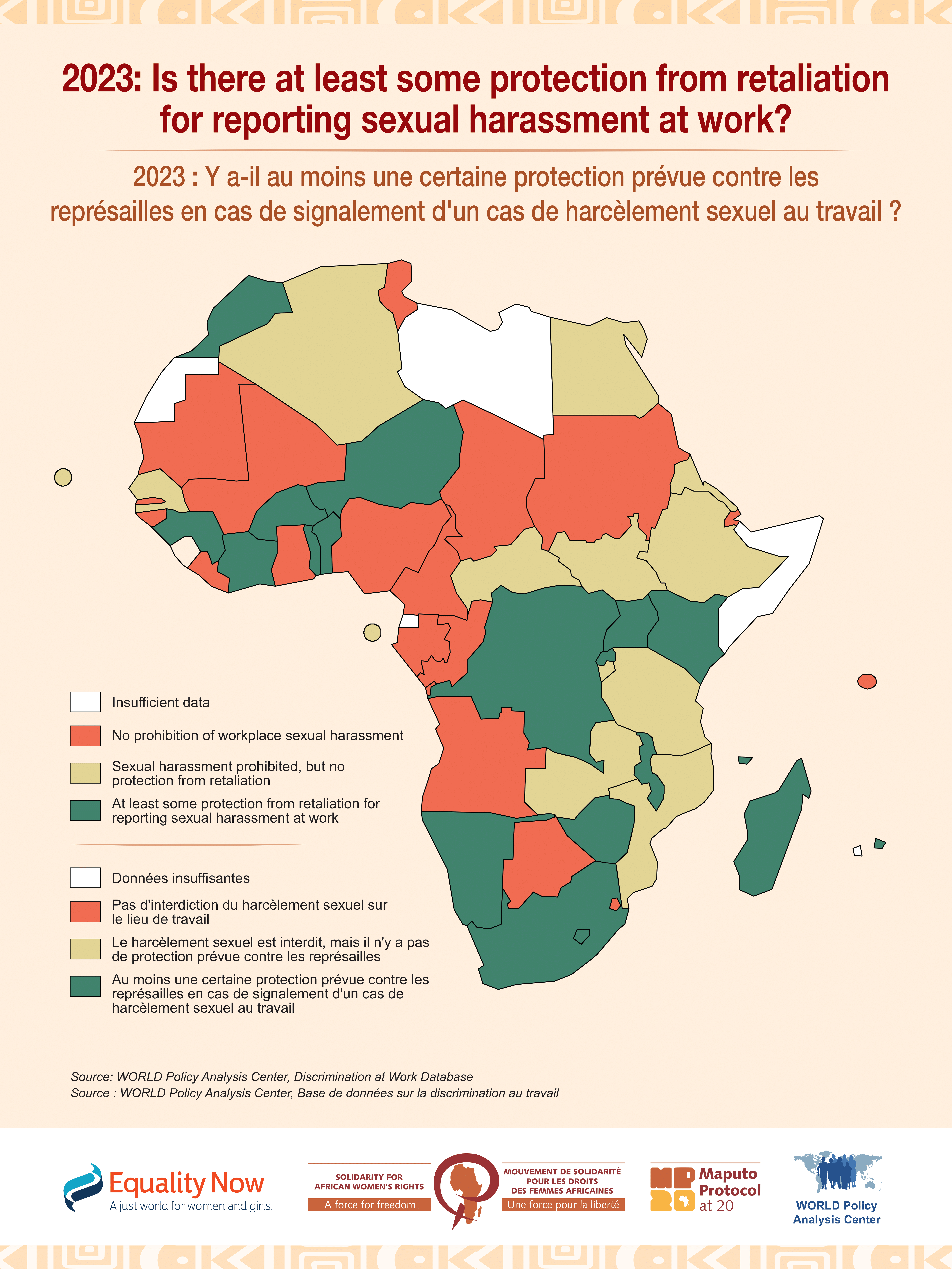
About the data
- The WORLD Policy Analysis Center (WORLD) aims to improve the quantity and quality of globally comparative data on policies affecting health, development, well-being, and equity. With these data, WORLD informs policy debates; facilitates comparative studies of policy progress, feasibility, and effectiveness; and advances efforts to hold decision-makers accountable.
- This analysis relies on an in-depth analysis of thousands of pages of constitutional text, legislation, and policy documents by a multilingual, multidisciplinary coding. For some analyses, legal text was not available for all countries. More detailed methodology is available at: worldpolicycenter.org/methodology
- This work was made possible by the generous support of the William + Flora Hewlett Foundation and Conrad N. Hilton Foundation.
About the Solidarity for African Women’s Rights (SOAWR) Coalition
Founded in 2004, SOAWR is a regional network of over 80 national, regional, and international civil society organisations based in over 30 African countries. The primary area of focus for SOAWR has been advocacy for African States to urgently ratify, domesticate and implement the Protocol to the African Charter on Human and Peoples’ Rights on the Rights of Women in Africa (the Maputo Protocol). Equality Now, a founding member of the Coalition, serves as its Secretariat.
About Equality Now
Equality Now is an international human rights organisation that works to achieve legal and systemic change that addresses violence and discrimination against women and girls around the world, with a focus on ending sexual violence, harmful practices, sexual exploitation, and achieving legal equality. Combining grassroots activism with international, regional, and national legal advocacy, Equality Now’s approach links high-level policy advocacy and global activism with support and legal advice to grassroots partners and networks working on specific cases of women and girls to promote change at all levels.
Share this data:

